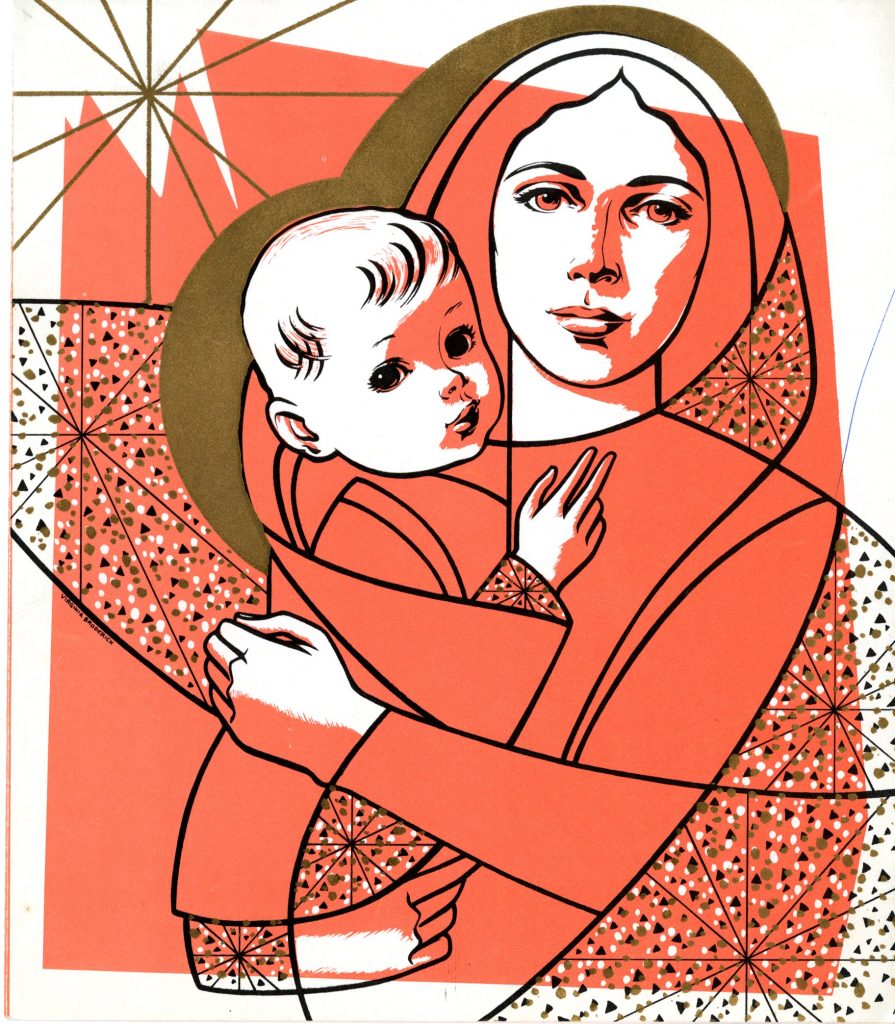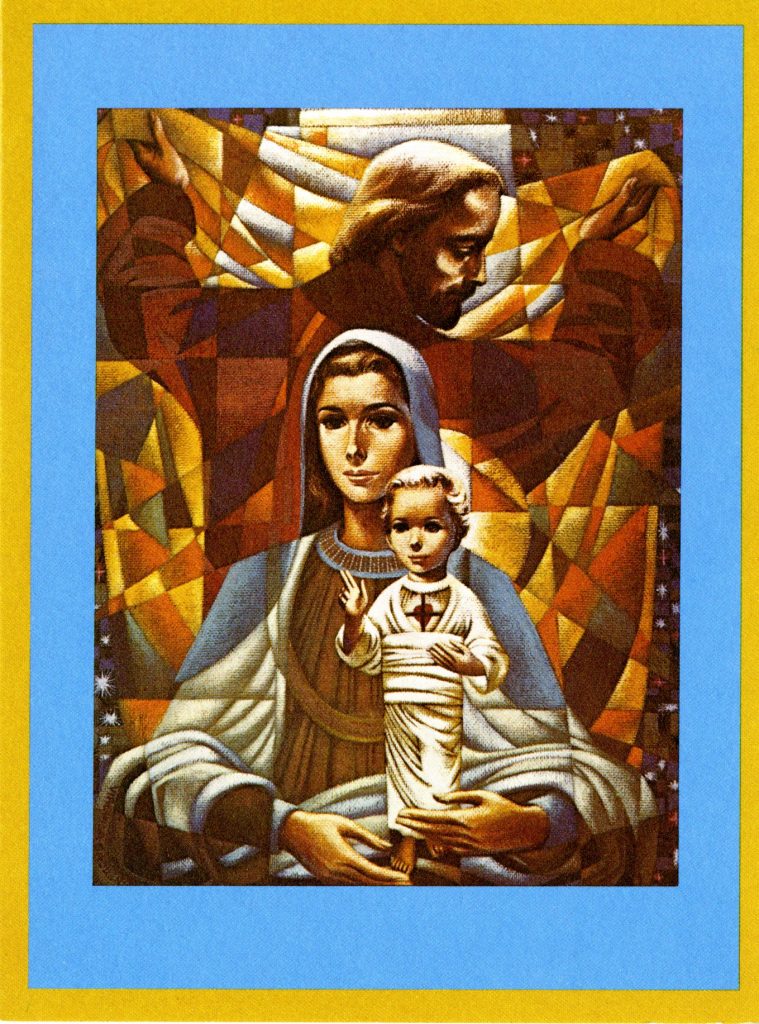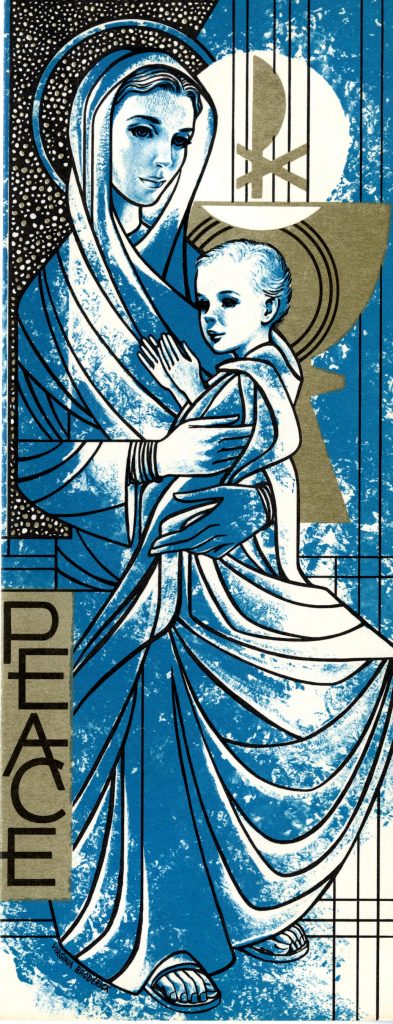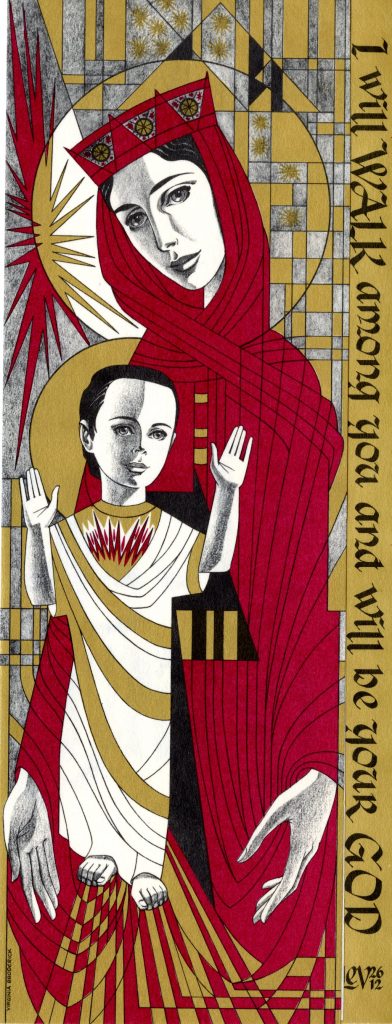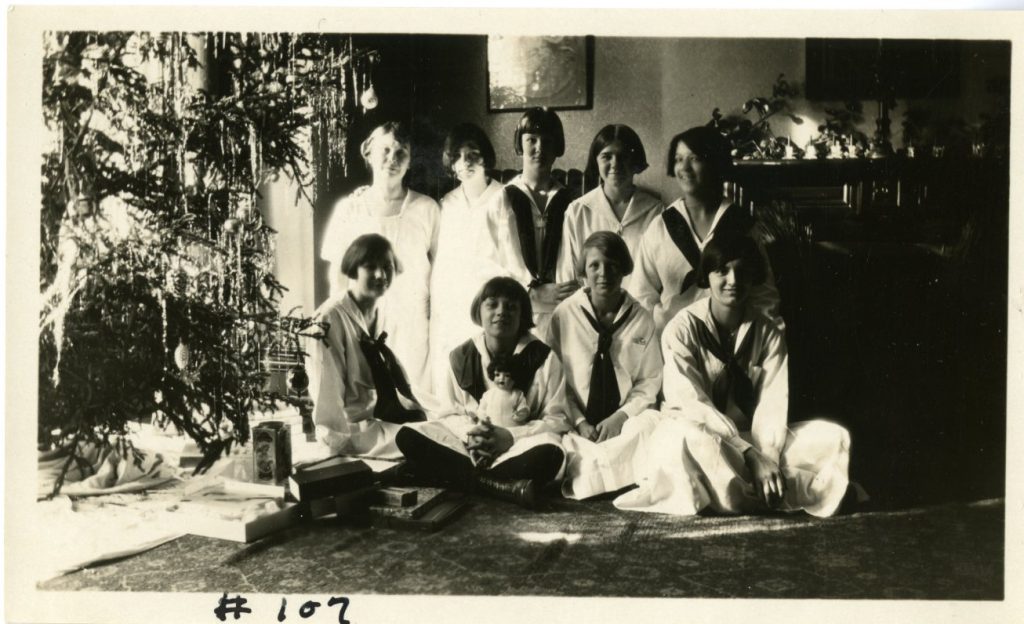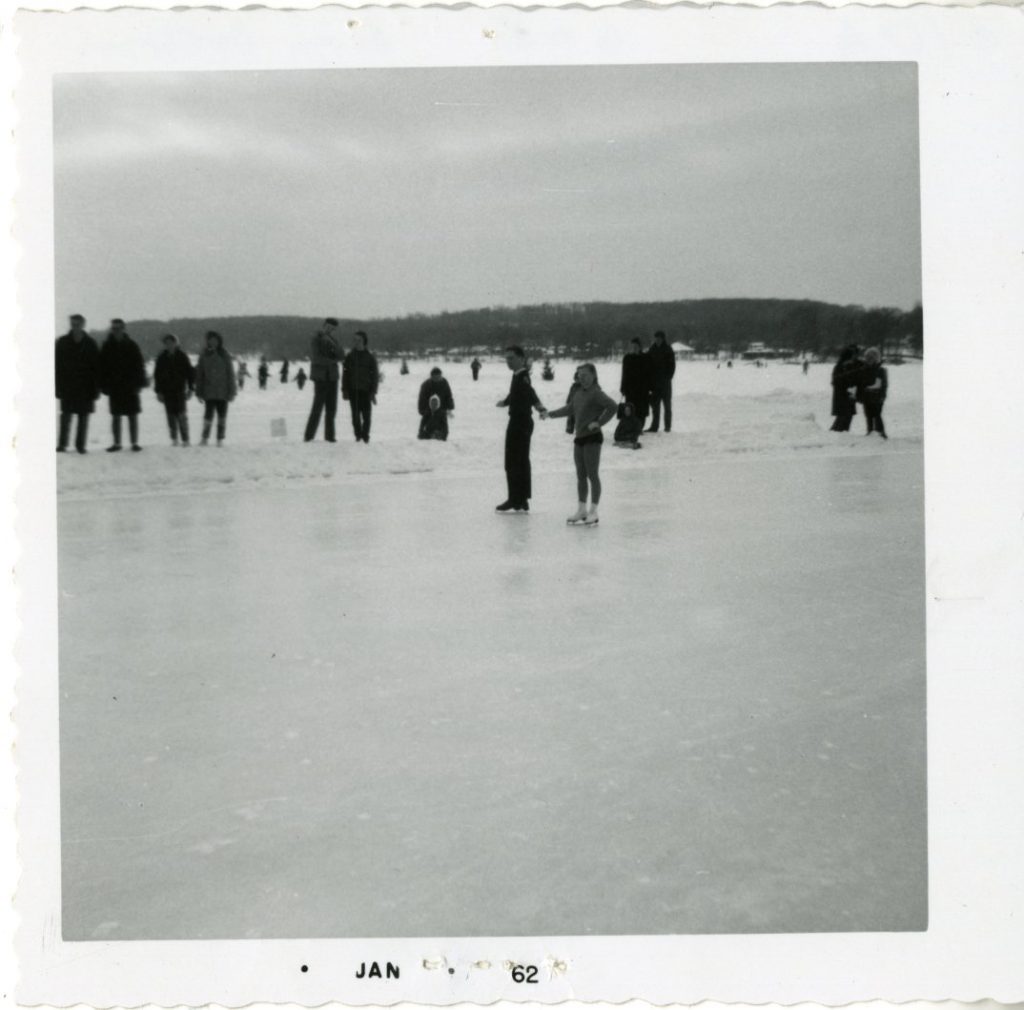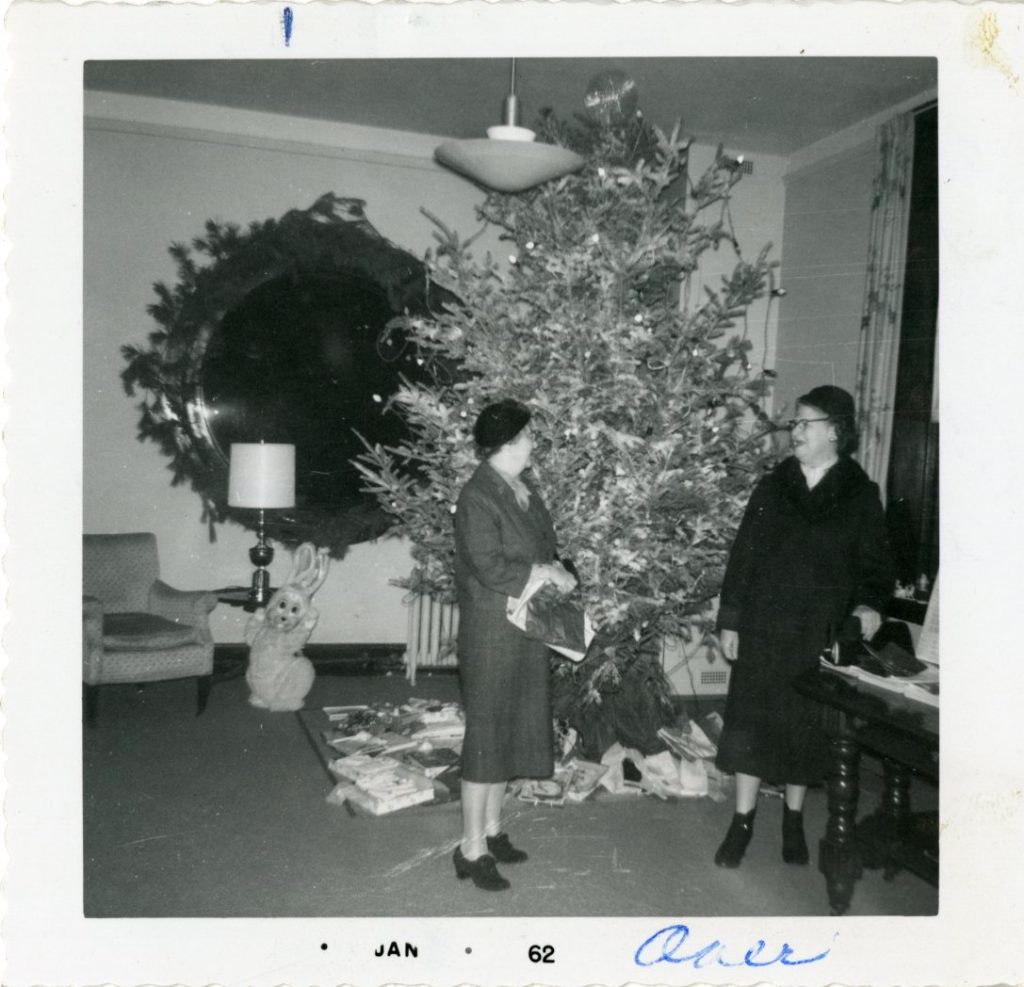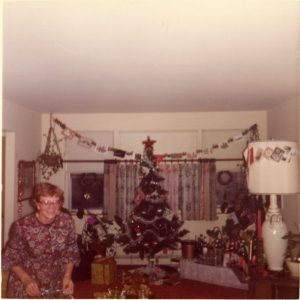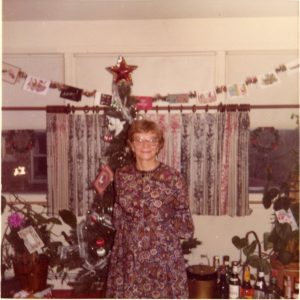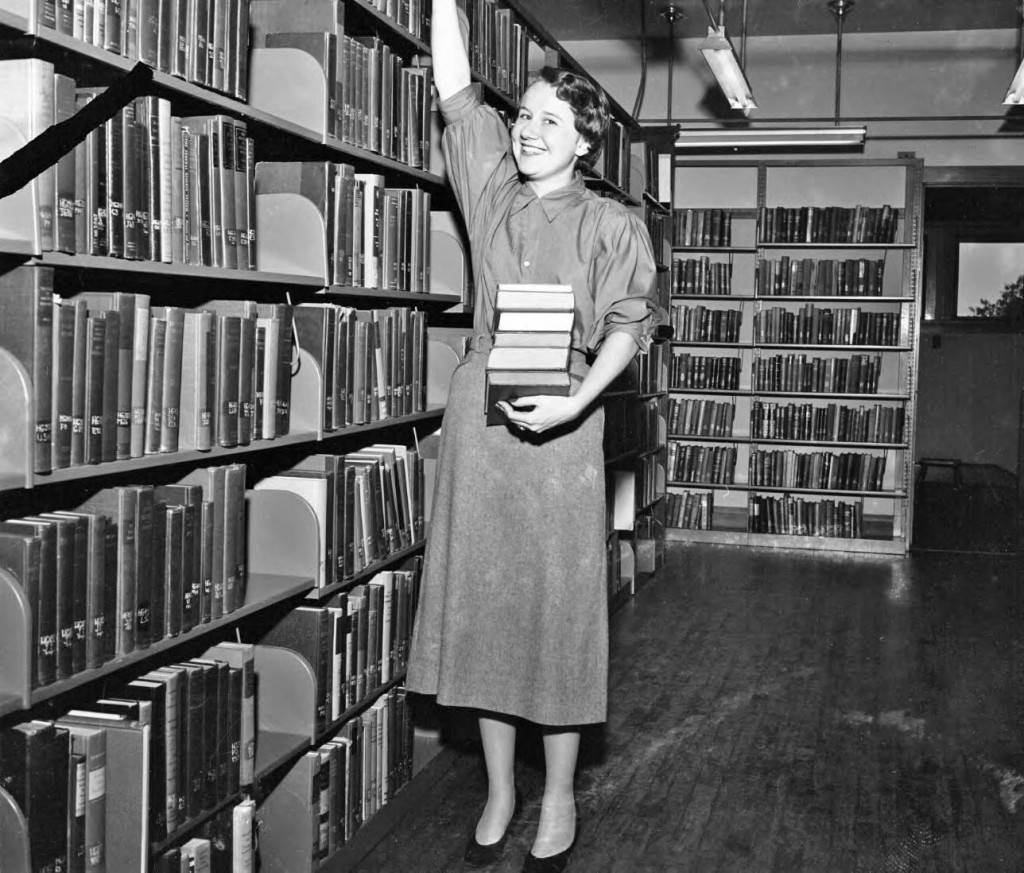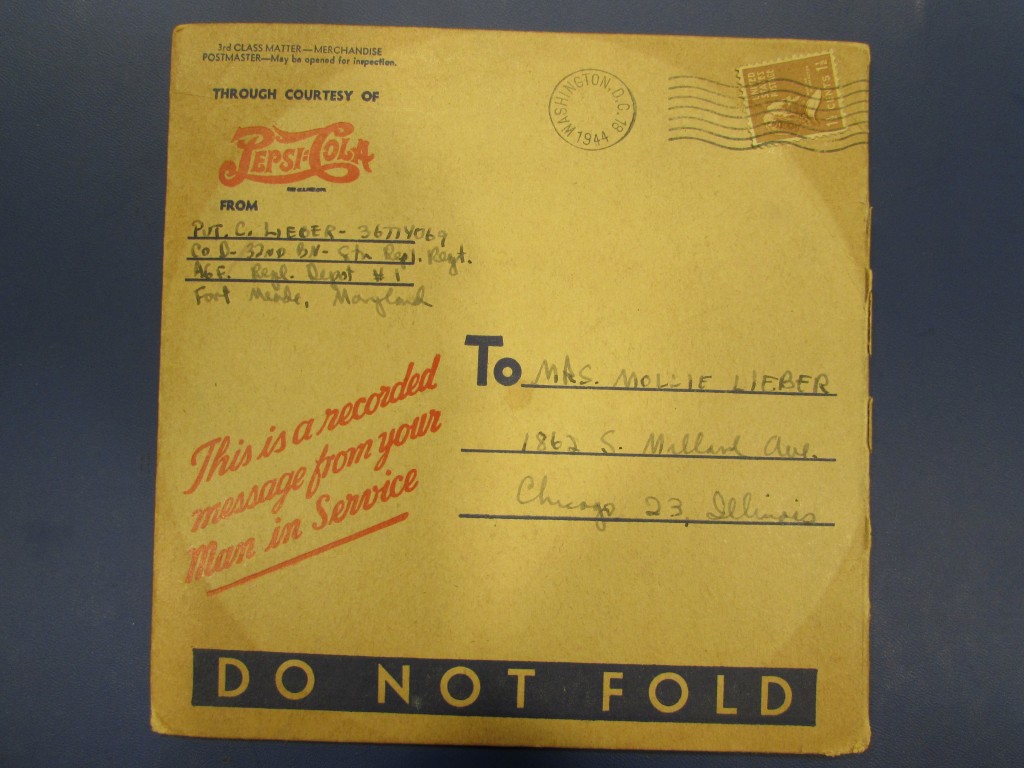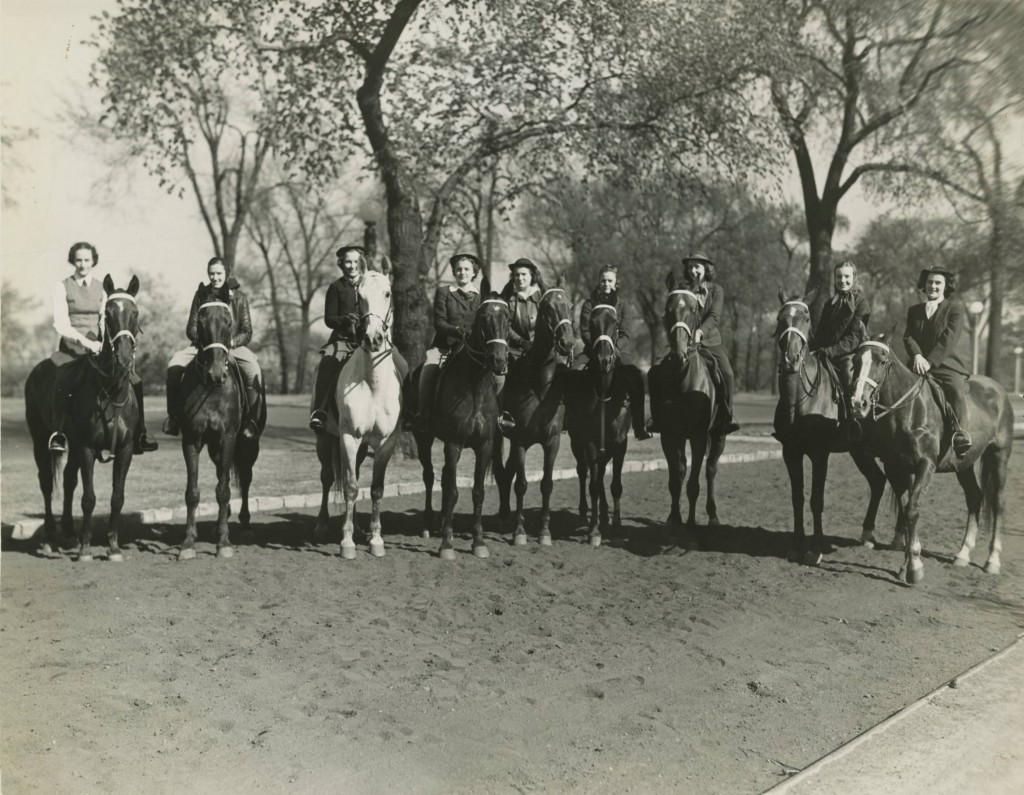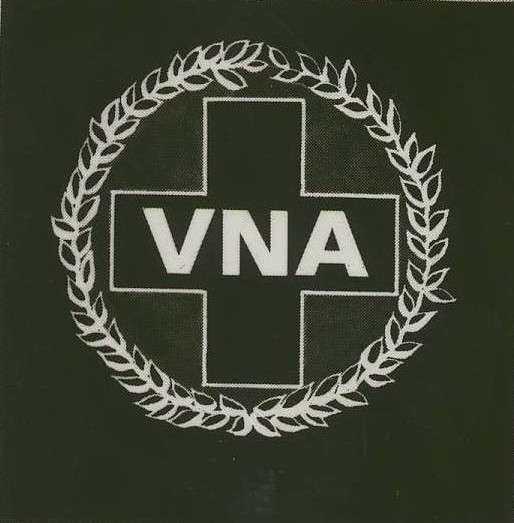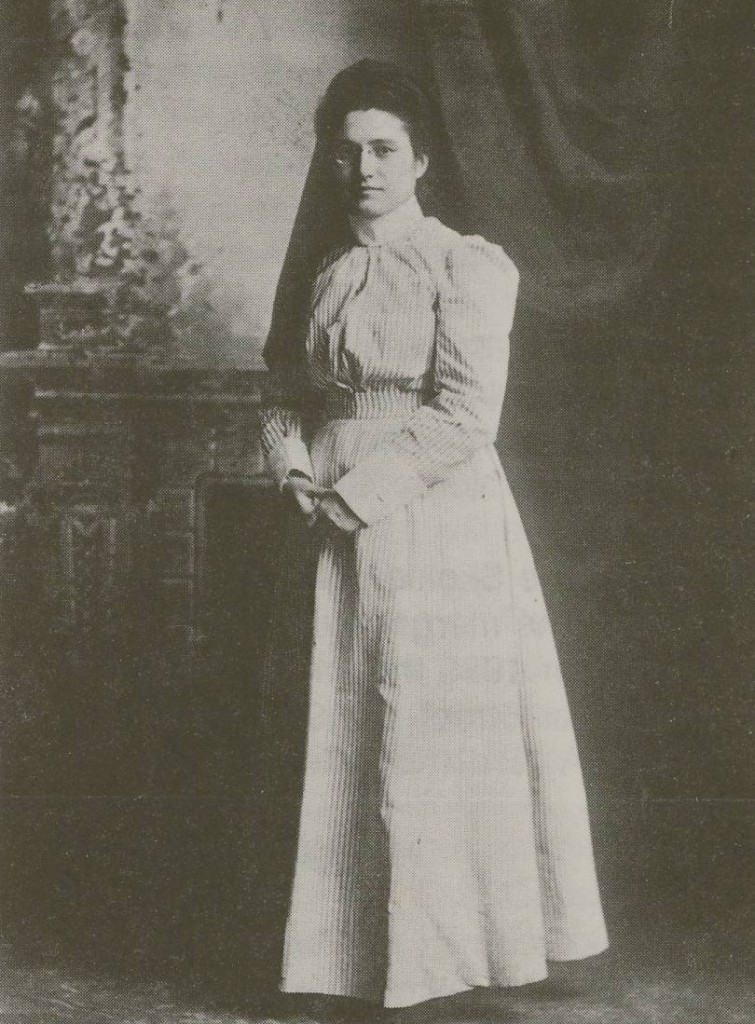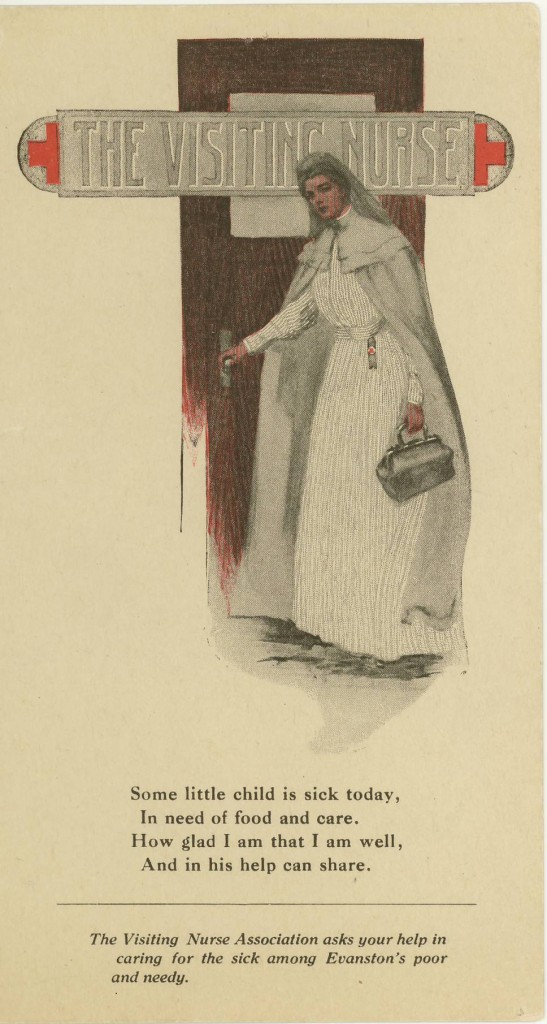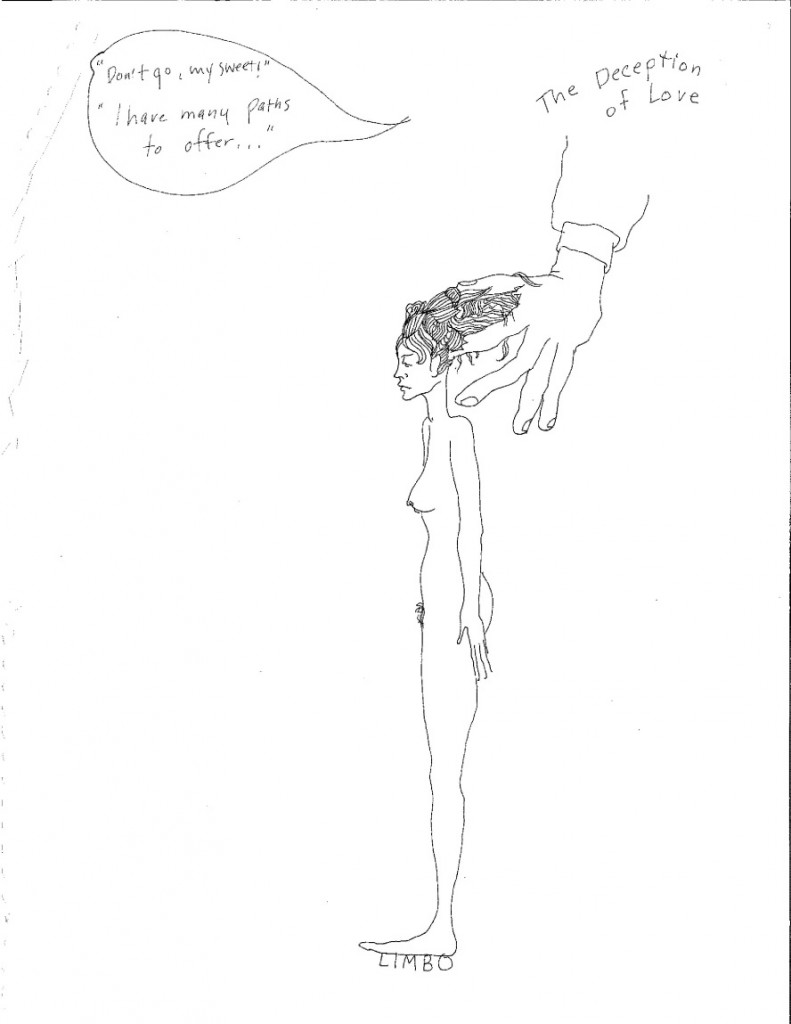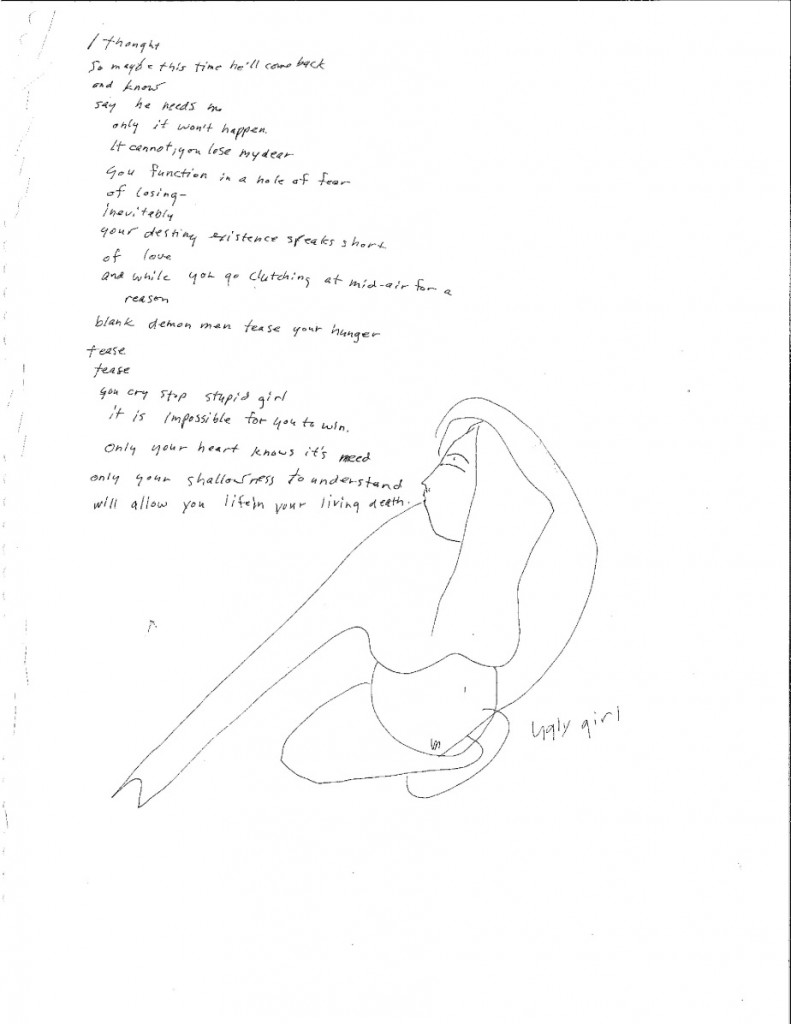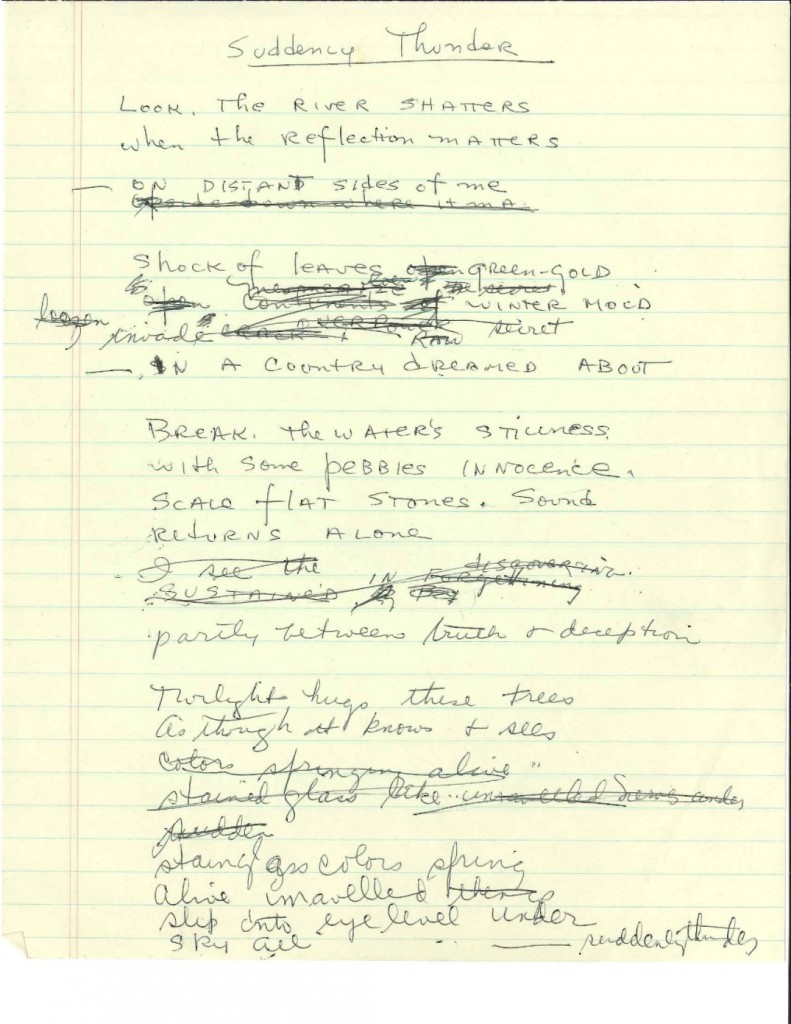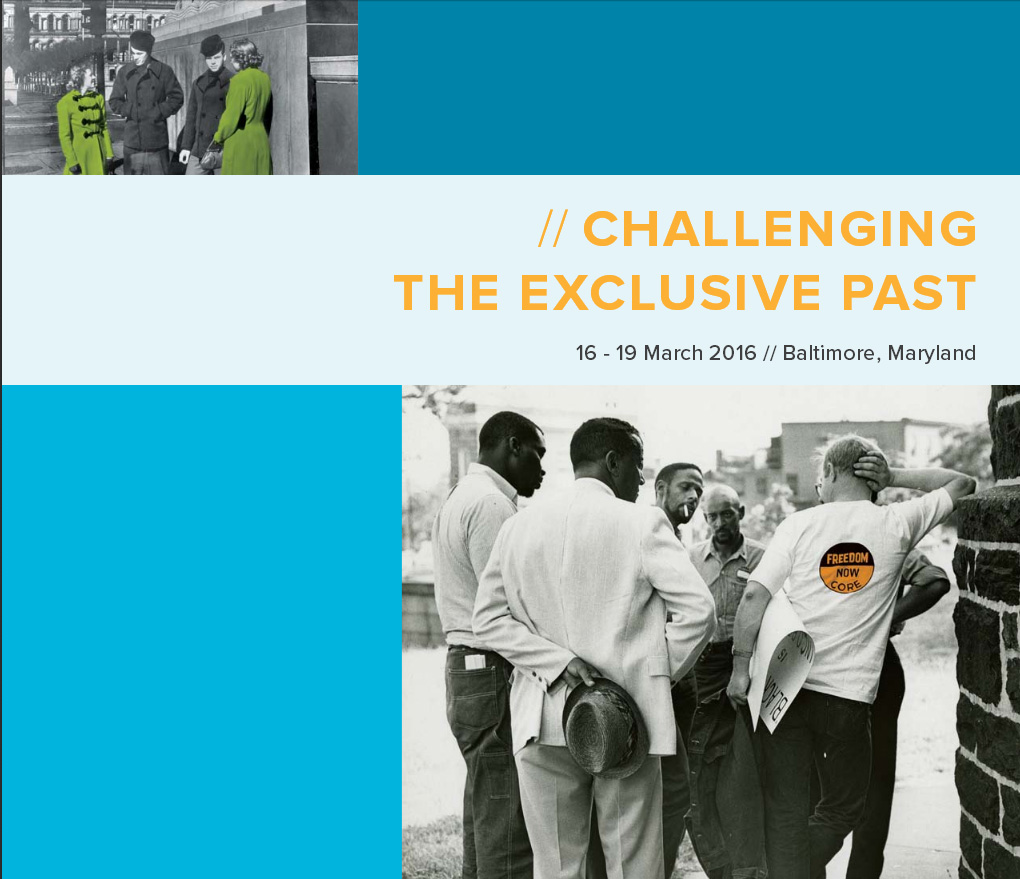Over the course of my two years at the Women and Leadership Archives (WLA) I’ve had the privilege to work with a lot of the collections we hold. From academics, artists, homemakers, social justice activists, women religious, nurses, politicians, business leaders – almost any vocation or subject you could name we’ve got a collection in which a woman or group of women were involved and rocking at it. Though I’ve yet to come across a collection that didn’t engage me, I have to admit that I have my favorites. What follows is my “hit parade” of my favorite collections at the WLA:
Tag Archives: Archives
Throwback Thursday: VHS Edition
I started at the WLA in January as an undergraduate volunteer intern and was very happy to be asked to stay into this summer as well. I am now going into my senior year and my work in the archive has taught me a lot about how history can be much more recent than I may have once thought.
For the past several months I have been working on processing a collection from the Cook County Treasurer, Maria Pappas. Maria Pappas has been a part of Cook County government since the early 1990s and started off that Cook County-based career with a PhD in counseling and psychology from our very own Loyola University Chicago. Pappas’ longevity in office has been documented not only in news articles, but in TV and radio appearances, which, wouldn’t you know it, have been preserved on VHS, a novelty for this 21 year old intern. Like many bygone technologies, like the CD player, Walkman, Nokia phones, and even an original iPhone, I thought VHS and audio cassettes were a thing of the past that would never cross my path again. Imagine my surprise when the first box that I went through from Maria Pappas’ donation contained nothing but VHS tapes, and not only that, but they were still watchable!
Although I knew what archives involved, in my imagination it always meant that I would be carefully handling decades, if not centuries old, journals and pictures. With this idea in mind, going through VHS tapes and CDs, objects from my childhood that now seem far outdated, has shifted my perspective of archives, and of history as a whole. With Maria Pappas’ progression through her career, the technology used to preserve her experience also progresses and changes, shifting from U-Matic tapes, cassettes, and VHS to CDs and MCRW discs. Being able to physically see a progression of time, not only in the contents of these media forms, but also in the media forms themselves adds another level to the understanding of how quickly history and technology can change. Most notably, it was surprising to come across technologies in the Pappas collection that I knew nothing about, like U-Matic tapes and MCRW discs. These technologies evolved and became outdated quickly, and were used in such small niches that their usefulness was quickly replaced by another form of technology.
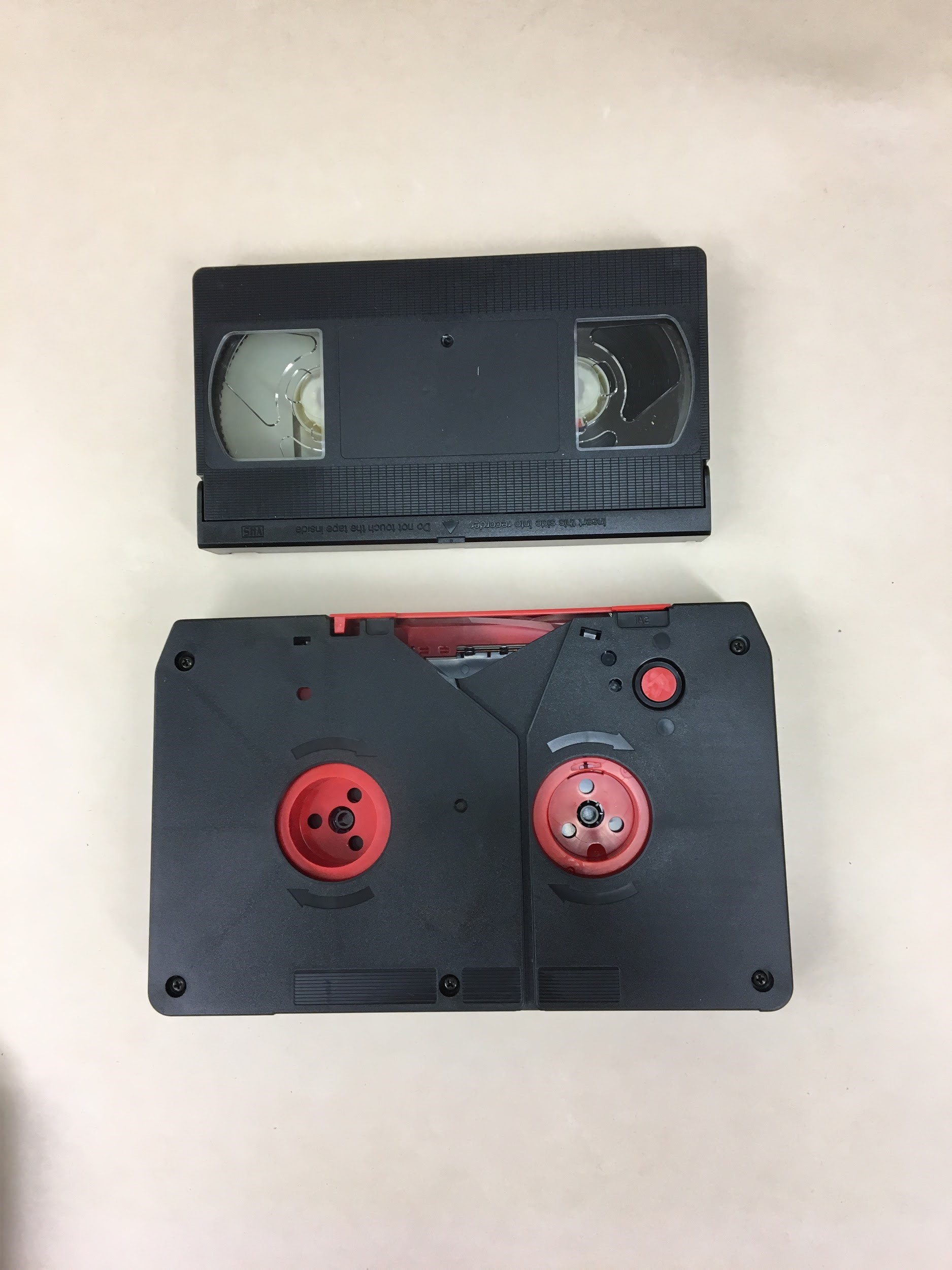
Media found in the Maria Pappas papers.
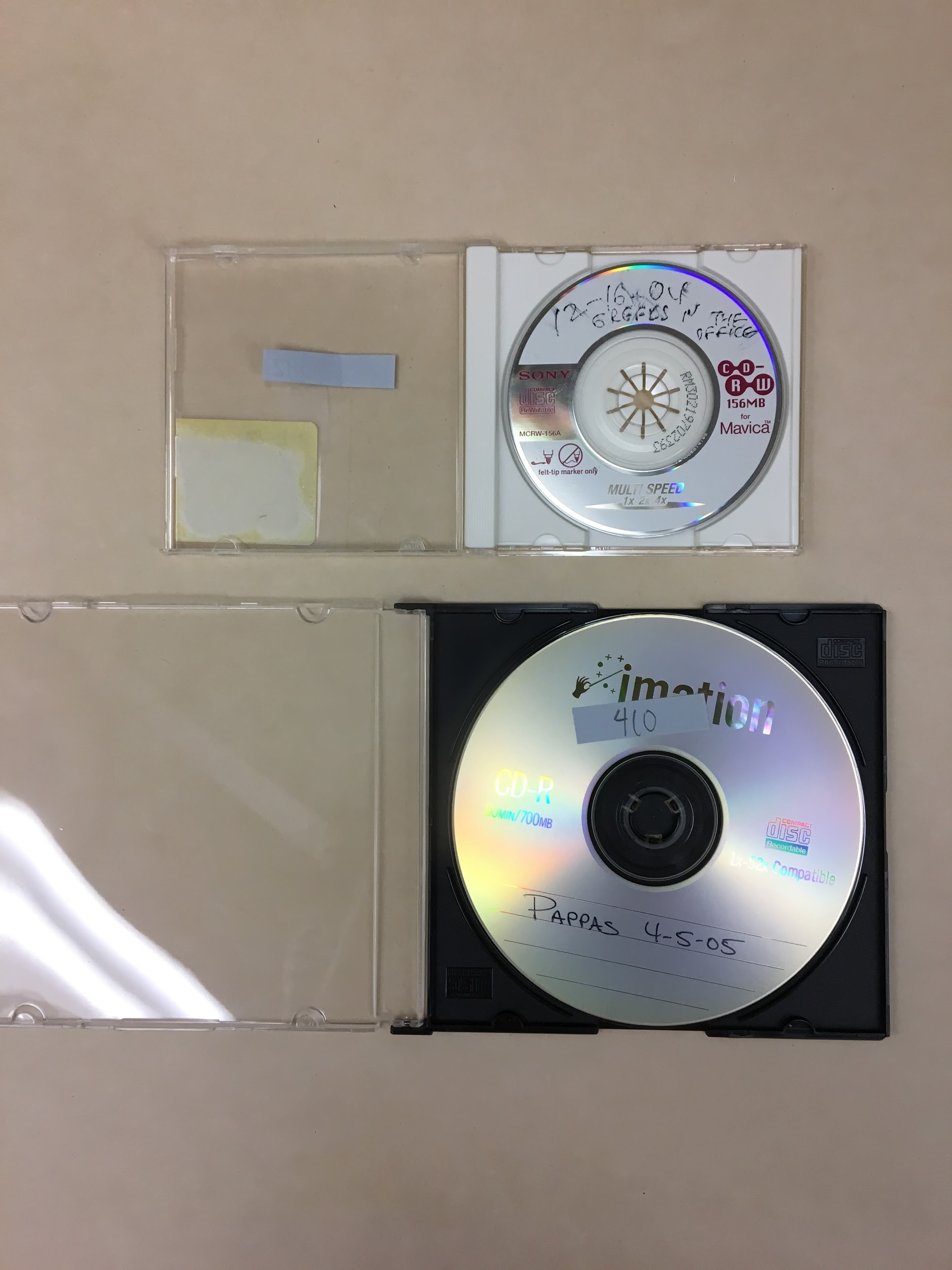
Media found in the Maria Pappas papers.
With the physical evidence of the longevity of Maria Pappas’ career in front of me in these different types of multimedia, actually going through the documentation and reading about her career and outreach programs over the years made the extent of her career seem more emphasized. Maria Pappas began as a member of the Cook County Board of Commissioners in 1990, then ran for Cook County Treasurer in 1998, a position she has held since then, and is the current incumbent for. Maria Pappas is credited with reorganizing the Cook County Treasurer’s office, which had been losing checks and improperly documenting interactions and notices for years before Maria Pappas was elected to the position.
After organizing the Cook County Treasurer’s office, Maria Pappas began her Treasurer’s Outreach Program and Services, in which she published property tax brochures in several languages and reached out to many different cultural communities in Chicago and the surrounding areas in order to make property tax payment information more accessible. Cook County is an incredibly diverse area and one that has $12 billion in property taxes collected annually. With this diversity in mind, Maria Pappas has ensured that she has efficiently informed all of the community members, displaying her understanding of the importance of progress and helping people in what some may see as atypical ways. Her impressive career and record is well documented, on paper, on VHS, and online, displaying the progression of a well-rounded career, as well as the advancement of technology and the advancement a community along with that career.
Amela is an intern at the WLA and has been working with the Cook County Treasurer, Maria Pappas’ collection. She is an undergraduate majoring in History and Environmental Science at Loyola and is an avid dog lover who sadly does not have one of her own yet, but will not let you walk past a cute one without letting you know.
Loyola University Chicago’s Women and Leadership Archives Blog is designed to provide a positive environment for the Loyola community to discuss important issues and ideas. Differences of opinion are encouraged. We invite comments in response to posts and ask that you write in a civil and respectful manner. All comments will be screened for tone and content and must include the first and last name of the author and a valid email address. The appearance of comments on the blog does not imply the University’s endorsement or acceptance of views expressed.
Mundelein College Remembers Them: Alumnae Files in the Archive
Have you ever wondered what happened to your parents’ college materials, or what could happen to your own file from your undergraduate or graduate career? After working with the vast archival collection of Mundelein College (MC), I’m tempted to call my parents’ universities and see if they have archival records.
The Women and Leadership Archives was founded on the collection of MC, which was run by the Sisters of the Blessed Virgin Mary. In my work as a graduate assistant, my assignment these last few months has been to process certain MC collection series, or topic subsets within an archival collection.
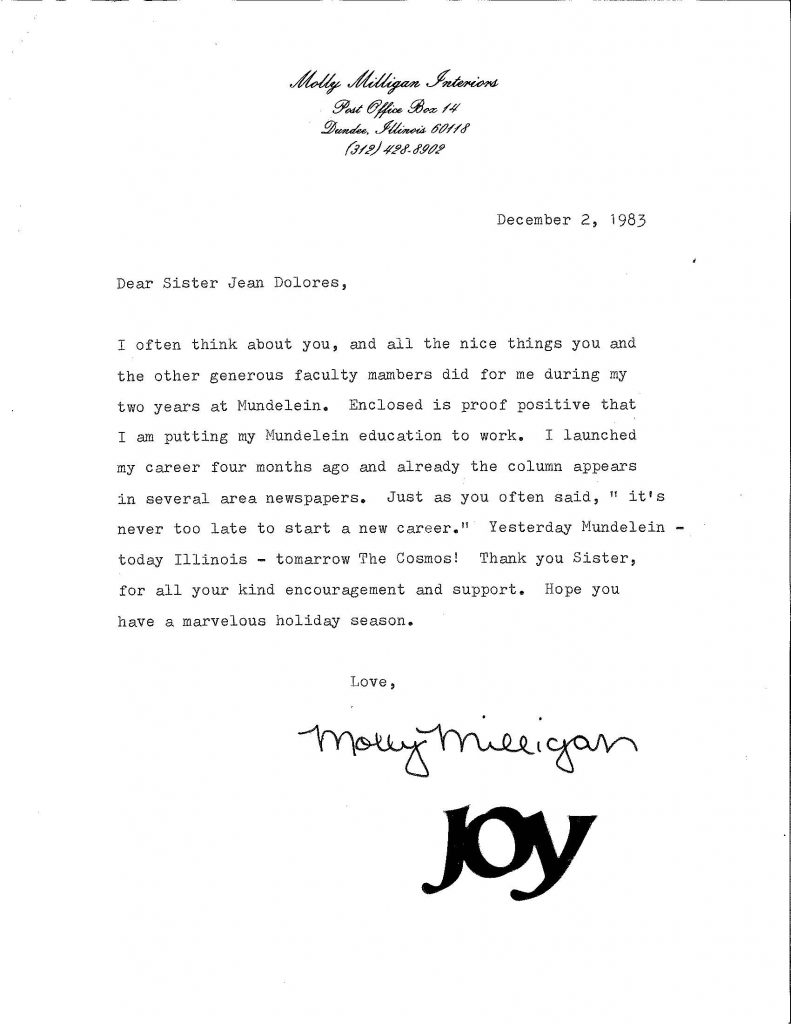
Alumna Molly Milligan wrote to the BVM nuns to express her thanks for what she learned at Mundelein.
One series in particular reminded me that listening is an integral part of learning. While organizing the MC alumnae series, which consisted of files on graduates of the college, I found endless numbers of stories. To my surprise, though it was not difficult physically, it was emotionally draining to process the alumnae series.
Though I tried not to read the materials too closely – that would slow me down – I ended up skimming many of the folders’ contents. As a result, it took me a lot longer than it should have to get through the series. However, I do not regret it: it was incredibly humbling to read these hundreds of folders and learn about the hundreds of lives they represent.
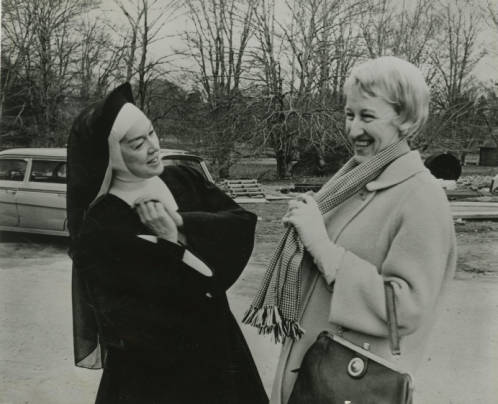
1966: Rosalind Russell and Jane Trahey (’43) on the set of “The Trouble with Angels,” a film based on Trahey’s book, “Life with Mother Superior.”
Mundelein College alumnae documented their struggles and successes from around the country. In letters sent to former University President Sr. Ann Ida Gannon, BVM, they related every aspect of their lives. Much of it was sad. Illnesses abounded – they fought cancers, personal injuries, and their families’ diseases. Some divorced their husbands, and wrote about the hurt they endured afterwards. Many women described their pain at the deaths of parents, spouses, and friends.
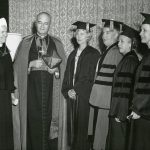
1964: (l to r) Sr. Ann Ida Gannon, B.V.M., Cardinal Albert Meyer, Honorary Degree Recipients: Claire Booth Luce, Dr, Bernice Cronkhite, Maude Clarke, and Dr. Virginia Woods Corbett-class of 1935
On the other hand, many of their stories were positive: they told of their families’ growth, their personal and professional work, and their memories of the college. All of these women loved their college and remembered it affectionately. One graduate and her husband raised ten children and sent regular Christmas cards (with updates) to Mundelein’s nuns. I felt as if I got to know the family through their formative years! Several women started their own businesses, both in Chicago and elsewhere. Helen Sauer Brown (‘44) and Jane Trahey (‘43) both launched successful careers in the business world. Still others achieved extraordinarily high academic honors. Virginia Woods Callahan Corbett (‘35) was Mundelein’s first student to obtain a doctorate, and Jacqueline Powers Doud (‘62) rose to become the president of Mount St. Mary’s College in Los Angeles.
Time after time, these folders reiterated to me that these women inspired love. The folder often began with a woman’s Mundelein student report cards and progressed through her life. But reaching the end of a folder always hurt: it usually concluded with an obituary. The obituary was often formal, but it became personalized through a letter to Mundelein nuns from the deceased’s grieving husband. In short, this series gave me little glimpses into the lives of Mundelein graduates and the deep care they inspired. They were academics, doctors, artists, and homemakers. They were parents, siblings, and – most importantly at the college – friends.
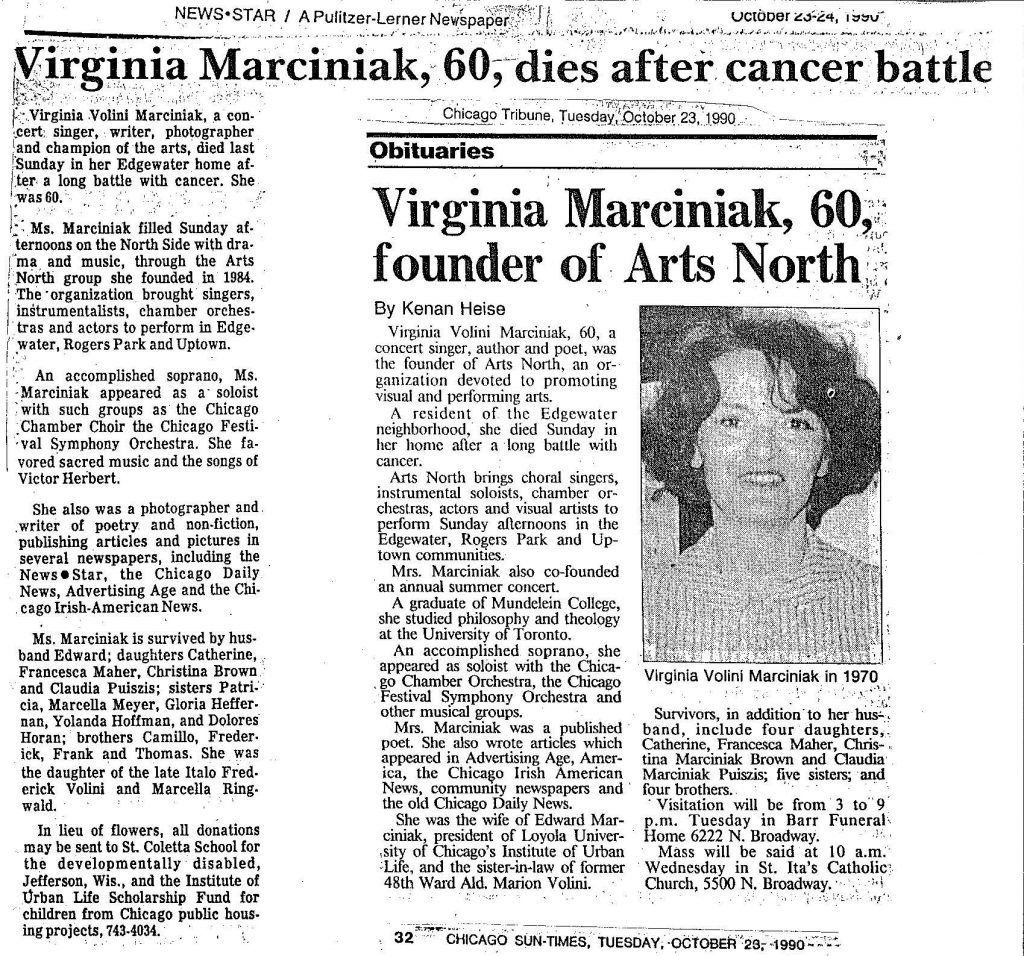
Virginia Volini Marciniak obituary, October 29, 1990
The funeral of one alumn will stay with me for a long time. After a long and involved life, Virginia Volini Marcinak (‘51) died of cancer in 1990. I learned all about her husband Ed – the president of Loyola Chicago’s Institute of Urban Life – and her daughters Christina, Claudia, Catherine, and Francesca. Virginia had a background in choral music and founded an art collective that served the Edgewater and Rogers Park neighborhoods.
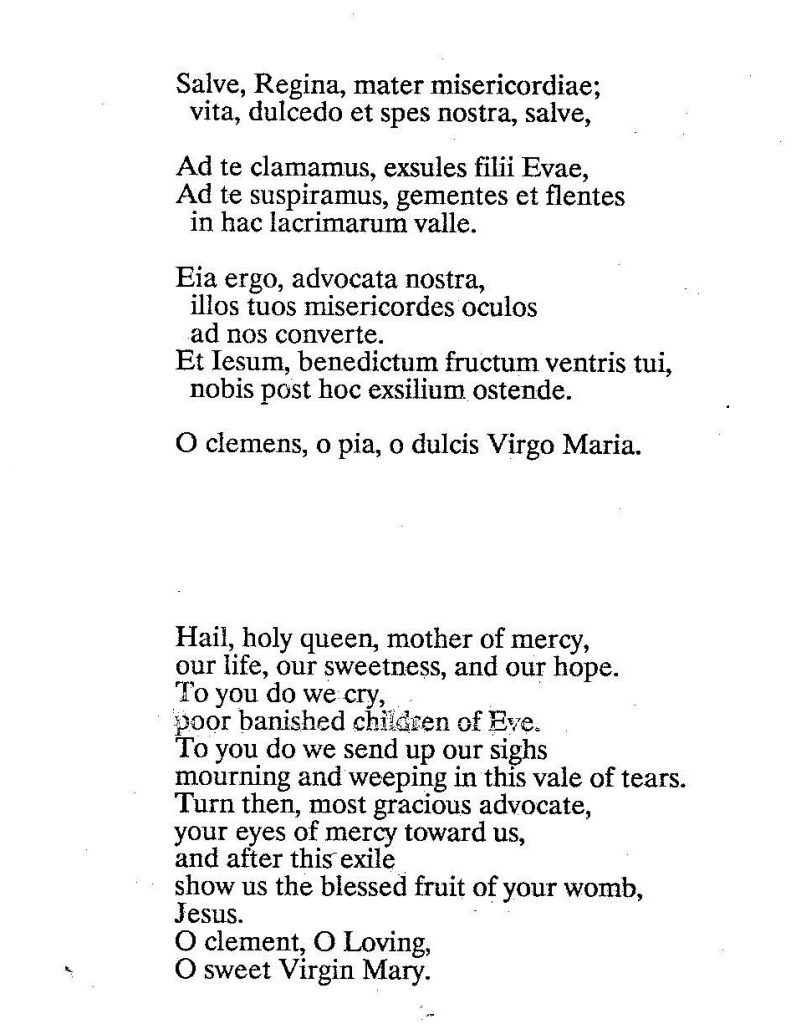
The “Salve Regina” sung at Marciniak’s funeral
Someone sent the Mundelein Archives a copy of the funeral sermon. Though it’s unclear who wrote it, the writer read it aloud at Virginia’s funeral. That person sang a “Salve Regina” to Virginia in her last hours. The last page of the sermon included the words of that song and requested that the attendees join in singing.
Perhaps I should have read fewer of the files, which were often as much about the families and spouses as the women themselves. However, I think I did the right thing. These women lived incredible lives connected by one college and its nuns. Someone should bear witness to those lives, even in a small way.
After reading hundreds of alumnae files, this woman’s tribute brought tears to my eyes. But I think that’s a good thing. Someone needed to bear witness to these lives in the archives, and that day, it was me.
Angela is a Graduate Assistant at the WLA and is in the first year of the MA in Public History at Loyola University Chicago. Originally from the West Coast, she is enthusiastic about swing dancing, choral music, and pub trivia. Angela is also a devoted National Public Radio listener.
Loyola University Chicago’s Women and Leadership Archives Blog is designed to provide a positive environment for the Loyola community to discuss important issues and ideas. Differences of opinion are encouraged. We invite comments in response to posts and ask that you write in a civil and respectful manner. All comments will be screened for tone and content and must include the first and last name of the author and a valid email address. The appearance of comments on the blog does not imply the University’s endorsement or acceptance of views expressed.
Christmas Collections and the Archives
With Christmas Day fast approaching, it seems an appropriate time to roll out the WLA’s collections featuring images of the season. Here are some of our favorites!
Virginia Broderick Papers:
Virginia Broderick was a successful artist that specialized in illustrating religious imagery in a style she called “cloisonism”. Influenced by famous Impressionist artists, Broderick employed bright, bold colors to highlight the subjects of her work as well intermittent use of bold lines to outline their shape. You can learn more about Virginia Broderick in this blog post from last Easter. See some of the beautiful Christmas cards she illustrated below:
Eleanor Foundation Collection (Unprocessed):
Founded in the early twentieth century by Ina Law Robertson, the Eleanor Foundation provided housing for working women and single mothers as the industrialization of Chicago opened opportunities for women in wage work at the turn of the century. The Eleanor Foundation also provided social programs for the benefit of its women. At its height in the early 1900s, the Eleanor Foundation boasted a junior league, a summer camp in Lake Geneva, and hosted several events supporting the various pursuits of its members. The organization’s vast outreach efforts were not unlike the famed Hull House founded by Jane Addams. Here are some photos of Christmas celebrations hosted by the Eleanor Foundation through the years:
I don’t know about you, but the bunny in that picture will haunt my dreams.
Legion of Young Polish Women Collection:
This Chicago-based ethnic non-profit works to promote the heritage and traditions of Poland while organizing charitable efforts for the sciences, education, and literature. Founded in 1939, the Legion is still an institution for the Polish community in Chicago to this day. For more about the Legion of Young Polish women, check out their digital exhibit.
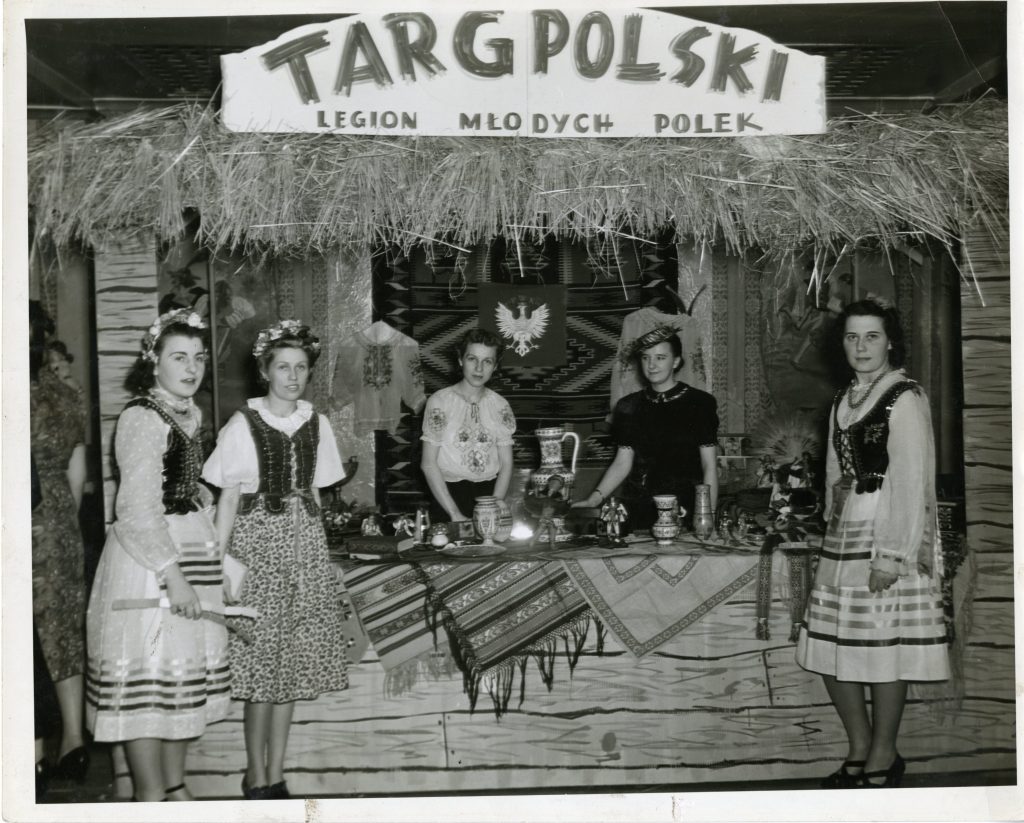
Legion representatives at a Christmas market, ca. 1940. Legion of Young Polish Women Collection, Women and Leadership Archives.
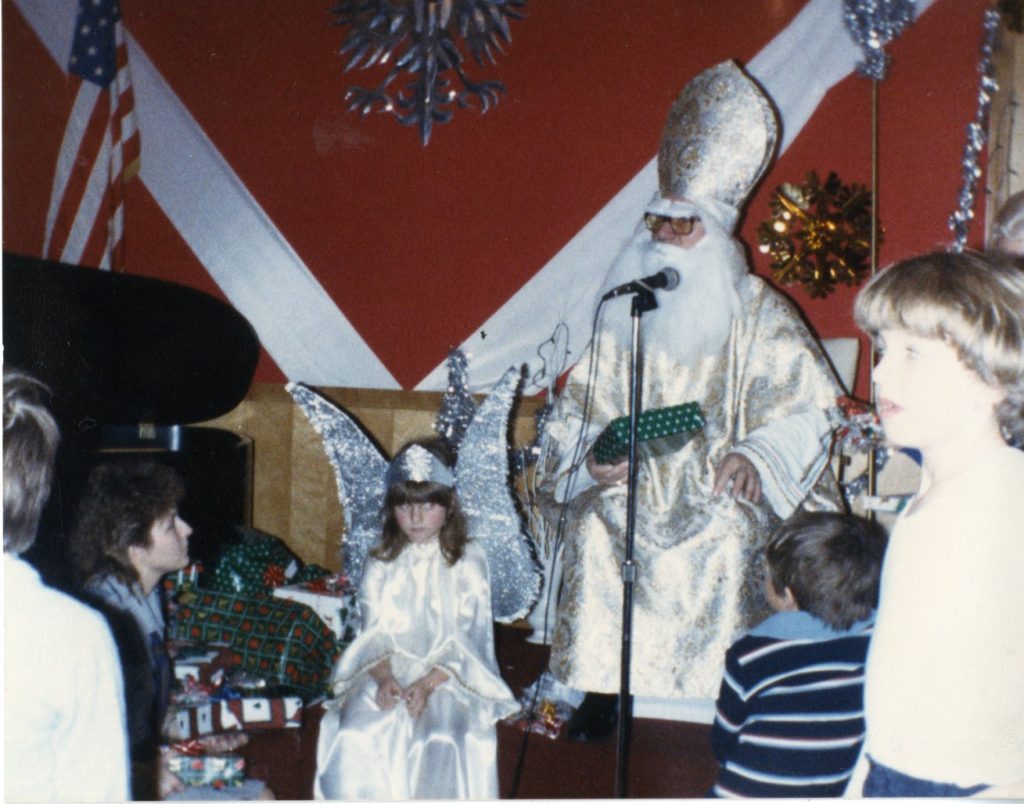
Christmas celebration, ca. 1980. Legion of Young Polish Women Collection, Women and Leadership Archives.
Fun fact: In Poland, December 6th is known as Mikołajki (or St. Nicolaus Day). On this day Mikołaj, or Santa Claus to Americans, visits good little boys and girls and doles out gifts dressed in either bishop’s robes (as seen above) or in the red suit so many associate with the Santa image.
Mollie West Papers:
Labor reformer Mollie West wasn’t all work and no play! Although she came from a Jewish family, Mollie enjoyed the Christmas holiday with her many friends. Here’s a great photo of Mollie at a Christmas shindig. To find out more about Mollie West and her remarkable life, check out the WLA’s newest digital exhibit here.
Ellen is a Graduate Assistant at the WLA and is in the second year of her M.A in Public History at Loyola University Chicago. Before moving to Chicago, Ellen was a Kindergarten teacher in Louisiana. She enjoys brunch, procedural dramas, and pugs.
Loyola University Chicago’s Women and Leadership Archives Blog is designed to provide a positive environment for the Loyola community to discuss important issues and ideas. Differences of opinion are encouraged. We invite comments in response to posts and ask that you write in a civil and respectful manner. All comments will be screened for tone and content and must include the first and last name of the author and a valid email address. The appearance of comments on the blog does not imply the University’s endorsement or acceptance of views expressed.
Women and Leadership Archives Summer Reading List
We at the Women and Leadership Archives love summer reading. If you’re like us, see below for a summer reading list inspired by the WLA’s collections!
For the movie-goers… All the King’s Men by Robert Penn Warren. This Pulitzer Prize winning novel tells the story of southern lawyer Willie Stark and his transformation from an idealistic man of the people to a corrupt politician who pays a high price in his pursuit of power. This loosely fictionalized account of Governor Huey Long of Louisiana boasts two movie adaptations. The first, released in 1949, features actress Mercedes McCambridge—whose personal papers are held in the Women and Leadership Archives! In her collection there is an original script of the film, movie stills, and newspaper clippings describing her Oscar-award winning performance as Sadie Burke.
Collections: Mercedes McCambridge Papers
For the time-travelers…Mundelein Voices: The Women’s College Experience edited by Anne M. Harrington and Prudence Moylan.
Founded in 1929 by the Sisters of Charity of the Blessed Virgin Mary, Mundelein College offered its all-female student body a comprehensive and rigorous Catholic liberal arts education. But Mundelein College, despite being run by nuns, had its share of hijinks! Readers can fully immerse themselves into the goings-on of the student body, and see what it was really like to be a Mundelein student, by reading this anthology of essays. I highly recommend the chapter by Joan Frances Crowley, B.V.M on her eight-year tenure as the director (then dean) of residence life. Anyone that has lived in a dorm will appreciate Crowley’s retelling of what it was like to live on-campus during the 1960s.
Collections: Mundelein College Collection
Joan Frances Crowley, B.V.M Papers
For the thrill-seekers…Red Spy Queen: A Biography of Elizabeth Bentley by Kathryn S. Olmstead
Fans of John Le Carré (of Tinker Tailor Solder Spy fame) will love the fascinating life story of Communist Party and Soviet Union defector Elizabeth Bentley—called the “Red Spy Queen” by tabloids and newspapers in the late 1940s. Interestingly enough, Elizabeth Bentley actually worked as a professor of Political Science at Mundelin College from 1949-1950. Imagine having a spy for a teacher!
Collections: Mundelein College Collection
Marjorie Rowbottom Frisbee Papers
For my fellow feminists…Tidal Wave: How Women Changed America at Century’s End by Sara M. Evans
Historian Sara Evans is an authority on the subject of women’s history and their continued journey to equality. Her first book Born for Liberty (1989) is a comprehensive look at the history of women from the sixteenth century to modern times. In Tidal Wave, Evans establishes the essential foundation necessary to introduce readers to the histories of second and third wave feminism and their lasting importance to the present day. The Women and Leadership Archives holds numerous records of artists, academics, women’s groups, and writers that can add additional context to this groundbreaking time in women’s history.
Collections: Feminism in Chicago: Connie Kiosse
For the scientists…Headstrong: 52 Women Who Changed Science-and the World by Rachel Swaby
This quick colorful book is for anyone who is curious about women’s contributions to the sciences. Divided into disciplines, this encyclopedic book provides brief entries about notable female doctors, biologists, environmentalists, mathematicians, astronomers, inventors; the list goes on and on! When you’re done, feel free to check out some of the WLA’s collections about women scientists
Collections: Mundelein College Collection—Sister Therese Langerbeck Files
Alice Bourke Hayes, PhD., Papers
For the mischief-makers…The Trouble with Angels by Jane Trahey
Originally entitled Life with Mother Superior, this fictionalized memoir by Mundelein Alumnae Jane Trahey describes the shenanigans of two rebellious young women attending a Catholic all girls boarding school. The book was made into a feature film in 1966 starring Hayley Mills as the main troublemaker Mary Clancy and Rosalind Russell as the domineering Mother Superior. If you can get your hands on this book (it’s out of print), you’re in for a light-hearted, nostalgic comedy perfect for laying out pool-side.
Collections: Mundelein College Collection – Jane Trahey Files
For the hopeless romantics…Letters from Home – Kristina McMorris
Sometimes all you want from a good summer read is a juicy historical romance novel. Based in Chicago during World War II, this love story highlights a couple whose only way to communicate with one another is through letters. To add a Shakespearean twist, the main character, Liz Stephens, falls in love with her pen pal while pretending to be someone else! If love letters are your thing, come in and look at the Mollie Leiber West Collection. The WLA holds scores of letters from Mollie to her husband Carl Leiber when they were separated by WWII. Their own tragic love story is not unlike one you would read in an especially romantic novel!
Collections: Mollie Leiber West Papers
Ellen is a Graduate Assistant at the WLA and is in the first year of her M.A in Public History at Loyola University Chicago. Before moving to Chicago, Ellen was a Kindergarten teacher in Louisiana. She enjoys brunch, procedural dramas, and pugs.
Loyola University Chicago’s Women and Leadership Archives Blog is designed to provide a positive environment for the Loyola community to discuss important issues and ideas. Differences of opinion are encouraged. We invite comments in response to posts and ask that you write in a civil and respectful manner. All comments will be screened for tone and content and must include the first and last name of the author and a valid email address. The appearance of comments on the blog does not imply the University’s endorsement or acceptance of views expressed.
Found in the Archives: A Message From Your Man in Service
This summer, I am working on the Women and Labor project, a new collaborative project in which I’m using the Mollie Lieber West Papers to create an online exhibit about the life of Mollie and the contributions of women in the labor movement. While I research the history of labor unions, women in the workforce, and Chicago in the 20th century, I am also learning more and more about Mollie West and finding so many cool things in her collection.
Along with Mollie’s many amazing accomplishments in the labor movement and endless stories of her bravery and dedication to social justice, her life included a beautiful love story that is told through letters, objects, and other materials in the collection.
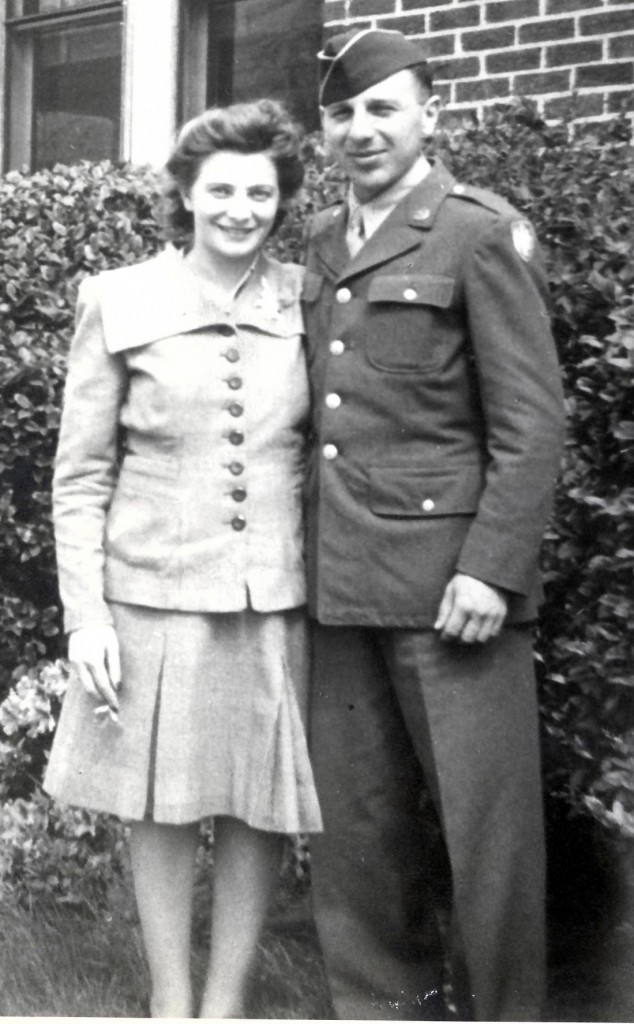
Mollie and Carl Lieber met while working for a newspaper and were married in 1940. Carl volunteered to join the Army in 1943.
Among Mollie’s papers, there is a small vinyl record. The label has an old Pepsi-Cola logo on it and says, “This is a recorded message from your man in service.” This 78 RPM record holds a sweet audio message from Carl Lieber, Mollie’s first husband, sent to her while he was serving in the Army.
During World War II, Americans joined together to help each other and the servicemen fighting overseas, including companies like Pepsi. From my internet research I learned that Pepsi ran canteens in New York, San Francisco, and Washington, D.C. that provided meals, showers, and other services to military men and women. They also set up recording booths in these canteens and sent a traveling recording booth to other military camps where millions of soldiers were able to create these wonderful audio letters to send to their loved ones. Online, I’ve found people talking about records they’ve found that were recorded in Louisiana, California, and Mississippi.
(Note: This blog post is not an endorsement for Pepsi. While this service they provided likely brought joy to many, companies also benefited from creating a patriotic image and connecting their products to the idea of victory in the war.)
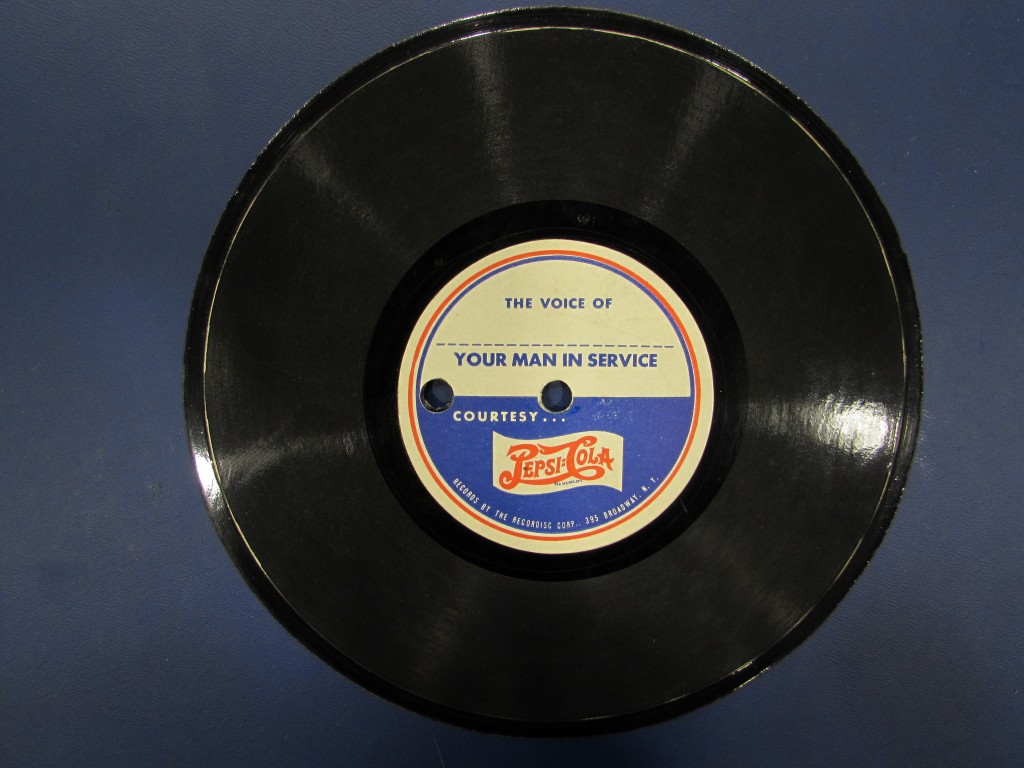
These records were sent from bases and training camps in the United States while soldiers waited to be sent to the war.
Thanks to a grant from Loyola University Chicago’s Center for Textual Studies and Digital Humanities, we were able to have this record and the other audiovisual materials in Mollie’s collection digitized. This gave us the opportunity to hear Carl’s voice and his message for the first time!
We also made another discovery with this digitization. A second record, with a label in Italian, turned out to not contain Italian music as we had expected. This record also held a recorded message from Carl that he had made while on leave for a day in Rome! The touching audio messages on both records reveal a lot about the couple’s relationship and the complex experiences of the war.
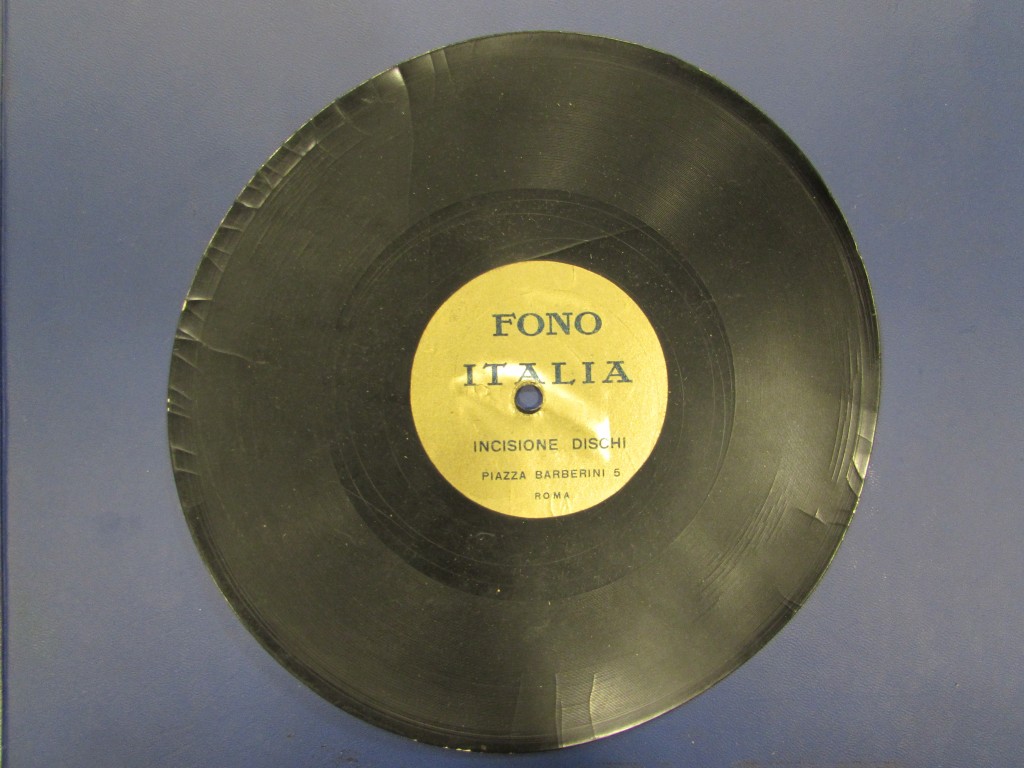
This mysterious Italian record turned out to hold another audio letter from Carl. It was able to be digitally preserved despite being very warped from age.
Carl’s messages and the others I listened to online contain words of encouragement to loved ones not to worry and descriptions of the good things about life in the training camps.
Here is the audio from the first record that Carl sent while in Washington, D.C. I did my best to transcribe Carl’s message, and you can find the transcript below!
“Hello, honey. I thought this would be a very nice way to bring us closer together on my birthday. Although we’re many miles apart, I want you to know that I feel that you are as near and dear to me as you have always been. I’ve never been much at making speeches of this kind, but I’ll try as hard as I can to convey my love to you. I’m making this record in Washington, D.C. I got here on a 12 hour pass. I wrote you a letter about it all. We’ve been married a little over 4 years now and I know you must be going through a pretty trying experience, with your condition and things as they are. But I want you to know that you’ve gotta keep up your morale, and it’s up to us in the armed forces to keep up the civilian morale. That’s why I felt I should make this record and give you a chance to hear my voice so you can celebrate my birthday, even though I’m not there with you to celebrate it together. I love you very much and feel that you should be with me, but I’m sure that as soon as we’re victorious in the war, we can be together and have a fine time together and do all the things we planned to do. Well, I’m getting …my own monotone, so don’t worry about it. I’m not going to sing a song for you, but I want to say now as I close that I love you very much and want you to keep healthy and keep well and do everything possible in order to see that you have a nice life in the future, and that means take care of that baby that’s comin’ along. So long, honey. I love you.”
The Women and Labor digital exhibit will feature the audio from both of these records, as well as more documents, photographs, videos, and artifacts that tell Mollie’s incredible story and the story of women in the labor movement. Follow the Women and Leadership Archives on Facebook to learn more and don’t miss the launch of the exhibit this August!
Caroline is a Graduate Assistant at the WLA and has just completed her Master’s in Public History at Loyola University Chicago. She spends her spare time exploring Chicago, interpreting dreams, and watching cheesy movies with her husband.
Loyola University Chicago’s Women and Leadership Archives Blog is designed to provide a positive environment for the Loyola community to discuss important issues and ideas. Differences of opinion are encouraged. We invite comments in response to posts and ask that you write in a civil and respectful manner. All comments will be screened for tone and content and must include the first and last name of the author and a valid email address. The appearance of comments on the blog does not imply the University’s endorsement or acceptance of views expressed.
Horses for Classmates: Horsemanship and Horse Shows at Mundelein College
Imagine a beautiful spring day in one of Chicago’s numerous parks. Perhaps you are jogging, enjoying your lunch break from work on a park bench, or simply strolling down various paths—taking in the landscape and enjoying the stretch of your legs. You view your surroundings and find the usual suspects: birds, flowers, trees, and a gaggle of collegiate women on horseback taking in the sites of the gorgeous day. Nothing out of the ordinary.
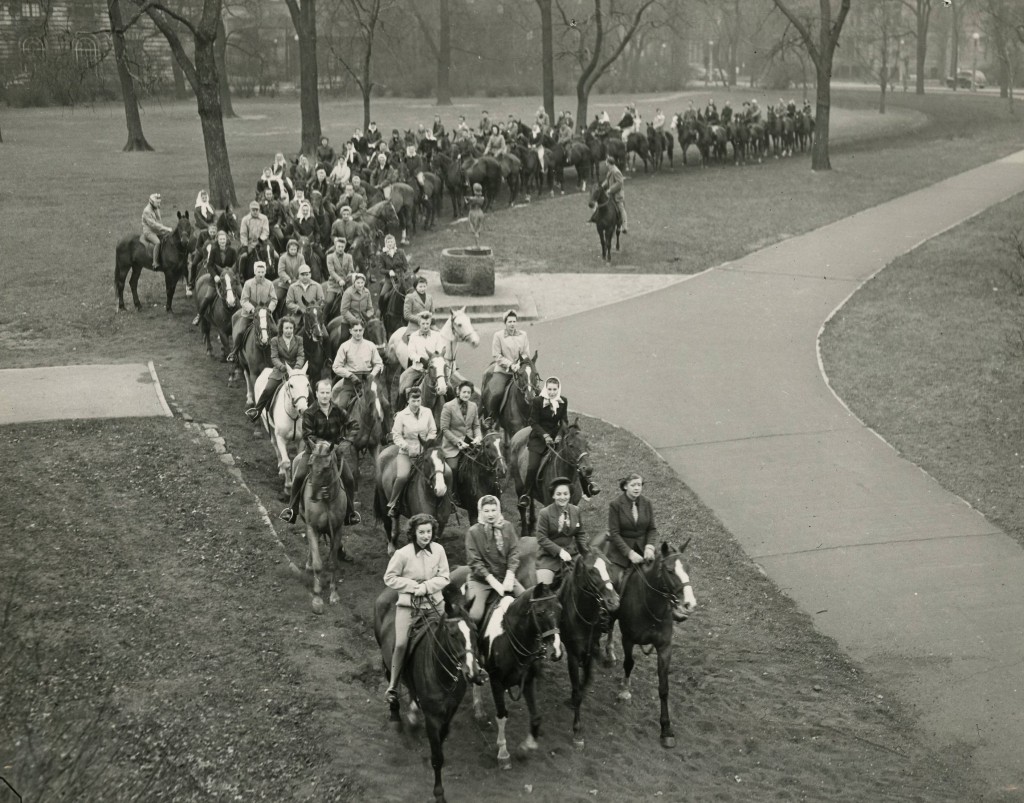
Photo of dozens of riders (some from Mundelein College Riding Club) on the Annual Breakfast Ride through Lincoln Park on November 1, 1940. Mundelein Photograph Collection.
In fact, up until the 1960s, this would not have been so unusual. Horseback riding was considered a popular form of exercise for many—including many students of Mundelein College. Mundelein College, a women’s Catholic liberal arts college, was founded by the Sisters of Charity of the Blessed Virgin Mary (BVMS) in 1929. When Mundelein opened its doors to students in the fall of 1930, horseback riding classes became a central part of its athletic program.
How did an urban college, housed in a skyscraper no less, provide the horses for these classes? A Chicago Tribune article states that during the early to mid-twentieth century, there were approximately 20 stables located near various Chicago Park District riding trails, housing as many as 100 horses. These horses could either be boarded, given a stall paid for by their owner for a monthly sum, or rented from the stable by the hour for riding. Most likely, the students of Mundelein chose to participate using one of those two options.
The first horseback riding classes offered to students began only a year after Mundelein’s opening and continued into the 1960s. The Skyscraper, Mundelein’s student newspaper, reported that 56 students of various skill levels enrolled in the two-hour weekly class. Students with more experience rode park trails while beginning riders held their first lessons in an indoor arena of a nearby riding academy. The journalist wrote that the course, “promises to be a popular one. By personal interview with the young women it becomes evident that there is fascination in the rhythmic hoof-beats of a horse.” The class could be taken for gymnasium credit and in some instances supplemented “regular” gymnastic course requirements.[1]
Some Mundelein students elevated the horse-related activities at the college. A student organization called the “Equestriennes,” more formally the Mundelein College Riding Club, planned an annual horse show that challenged members to compete in various events that not only highlighted their technical skill but also promoted showmanship. Events such as “musical chairs on horseback” and a costume race added unique flavor to the more traditional atmosphere of a schooling show.[2] In later years, the Equestriennes opened up entrants to high-school students for a special invitational class and charged admission to the proceedings.[3]
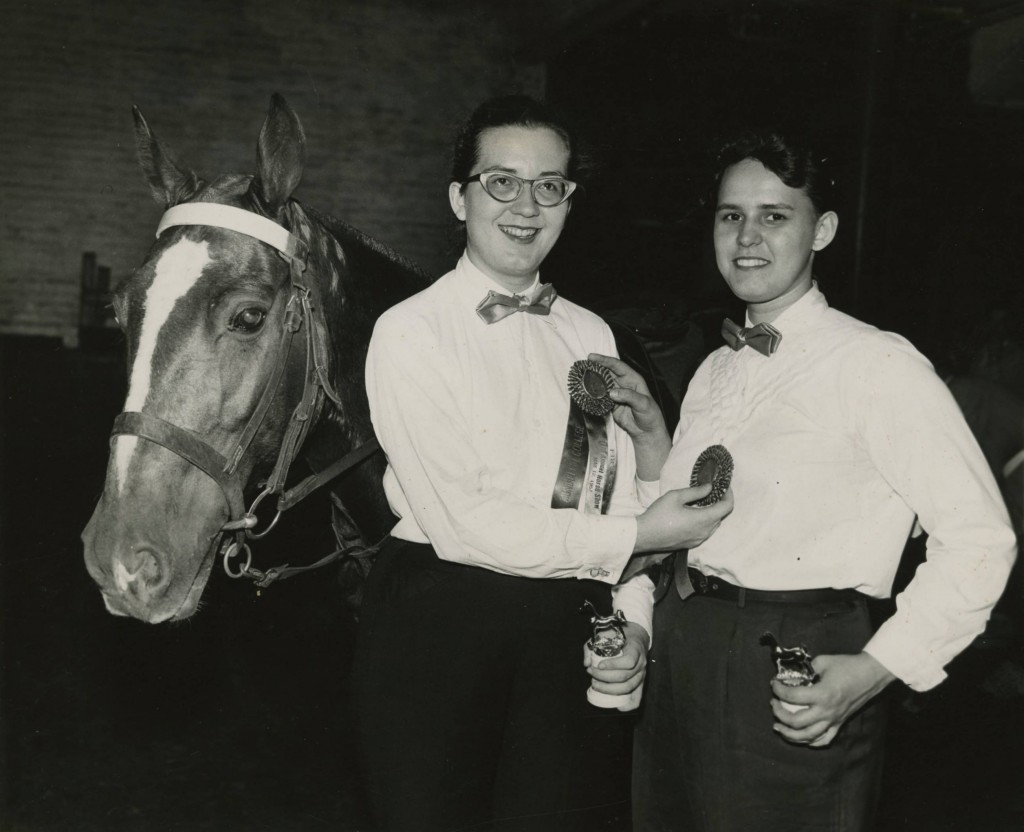
Horsemanship awards photo of 2 riders with horse posing with their trophies, undated. Mundelein Photograph Collection.
Looking through pictures of Mundelein students competing alongside their friends and horsey partners takes me back to my own equestrian past. I rode and competed for 14 years before putting up the spurs to pursue my M.A in Public History. I think it’s time to dust off the old breeches and get back on the saddle!
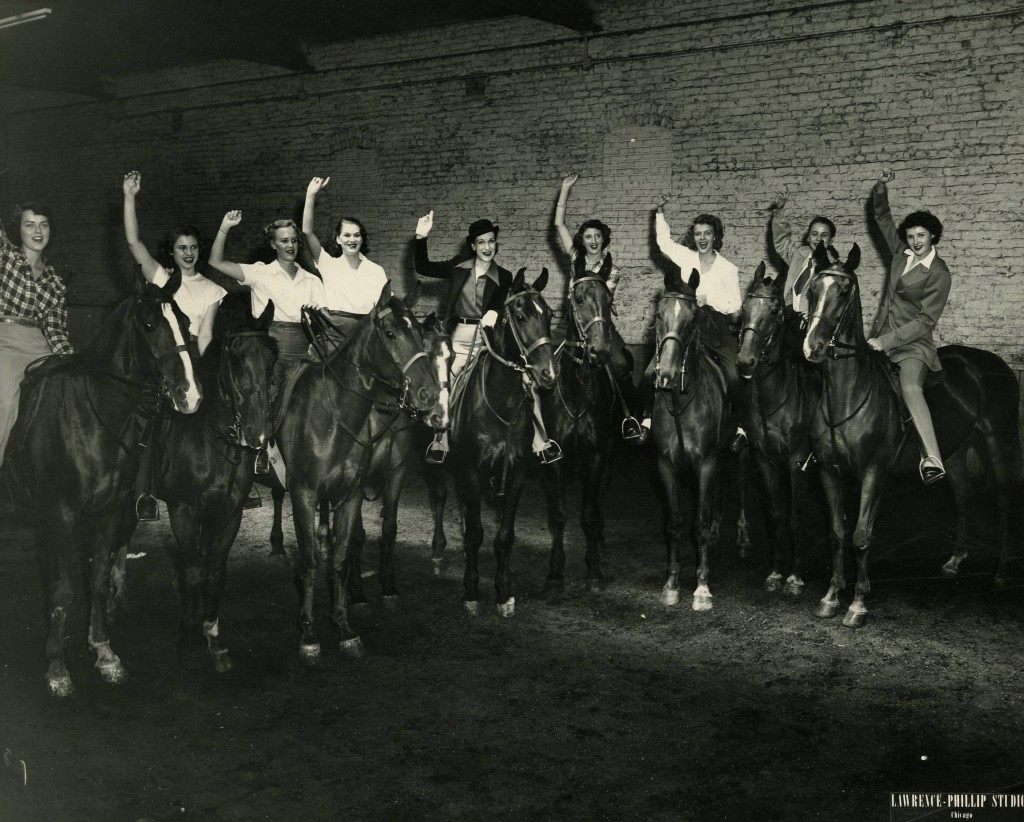
Group photo of Mundelein College Horseback Riding Club taken at Parkway Stables for the Annual Horse Show, 1940. Mundelein Photograph Collection.
[1] “Riding Classes Meet Each Week,” The Skyscraper, October, 15, 1931.
[2] “College Horse Show Includes Riding, Jumping Exhibition,” The Skyscraper, May 31, 1945.
[3] “Riders Vie for Trophies, Ribbons at Seventeenth Annual Horse Show,” The Skyscraper, May 6, 1957.
Ellen is a Graduate Assistant at the WLA and is in the first year of her M.A in Public History at Loyola University Chicago. Before moving to Chicago, Ellen was a Kindergarten teacher in Louisiana. She enjoys brunch, procedural dramas, and pugs.
Loyola University Chicago’s Women and Leadership Archives Blog is designed to provide a positive environment for the Loyola community to discuss important issues and ideas. Differences of opinion are encouraged. We invite comments in response to posts and ask that you write in a civil and respectful manner. All comments will be screened for tone and content and must include the first and last name of the author and a valid email address. The appearance of comments on the blog does not imply the University’s endorsement or acceptance of views expressed.
Visiting Nurse Association: Affordable Health Care at the Turn of the Century
Affordable health care is currently a serious concern in our country, as it has been for generations. Just like today, people of the past have looked for new ways to provide healthcare services to those who can’t always afford it. Late in the nineteenth century, growing populations, the influx of immigrants, and new infectious diseases began to cause problems in American cities. In 1897, a group of women in Evanston, Illinois became concerned with the spread of disease and the lack of proper health care in their community. They came up with an idea for how to bring free or low-cost health care to those who needed it and those who struggled to afford it.
Mrs. Lelah Lutkin, Mrs. Mary Chandler, and Mrs. Kate McMullen formed a committee that founded the Visiting Nurse Association (VNA) of Evanston, which would later grow to serve a wider community and be renamed the VNA North. Kate McMullen felt especially passionate about the experiment after the death of her daughter, Edna, to diphtheria. In memory of Edna, she contributed four months’ of a nurse’s salary and hired her daughter’s nurse, Frances Faltz, as the VNA’s first visiting nurse in 1898.
In the early years, Frances Faltz visited patients on a bike in the summer time and borrowed a horse and buggy in the winter. This remained the custom until the VNA bought a car for the nurses in 1912.
The visiting nurses provided physical and emotional comfort to people in the community who might not otherwise be able to afford health care. Local philanthropic organizations and churches soon became involved in supporting VNA North’s mission, and VNA North slowly expanded its operations, becoming incorporated in 1912. Although they had not originally cared for patients with communicable diseases, the visiting nurses began to do so in 1926.
The VNA continually added services as the needs of Evanston and the surrounding communities dictated. Educating patients about proper hygiene and nutrition as ways of preventing disease became a vital part of the visiting nurses’ role. They were also involved in issues of pre-natal care, parenting classes, infant welfare, tuberculosis, venereal disease, mental health, polio, physical therapy, hospice care, and other social services. Looking at the records of the association, you can see the effect of historical events such as the Great Depression and World War II on public health concerns and how the VNA addressed them.
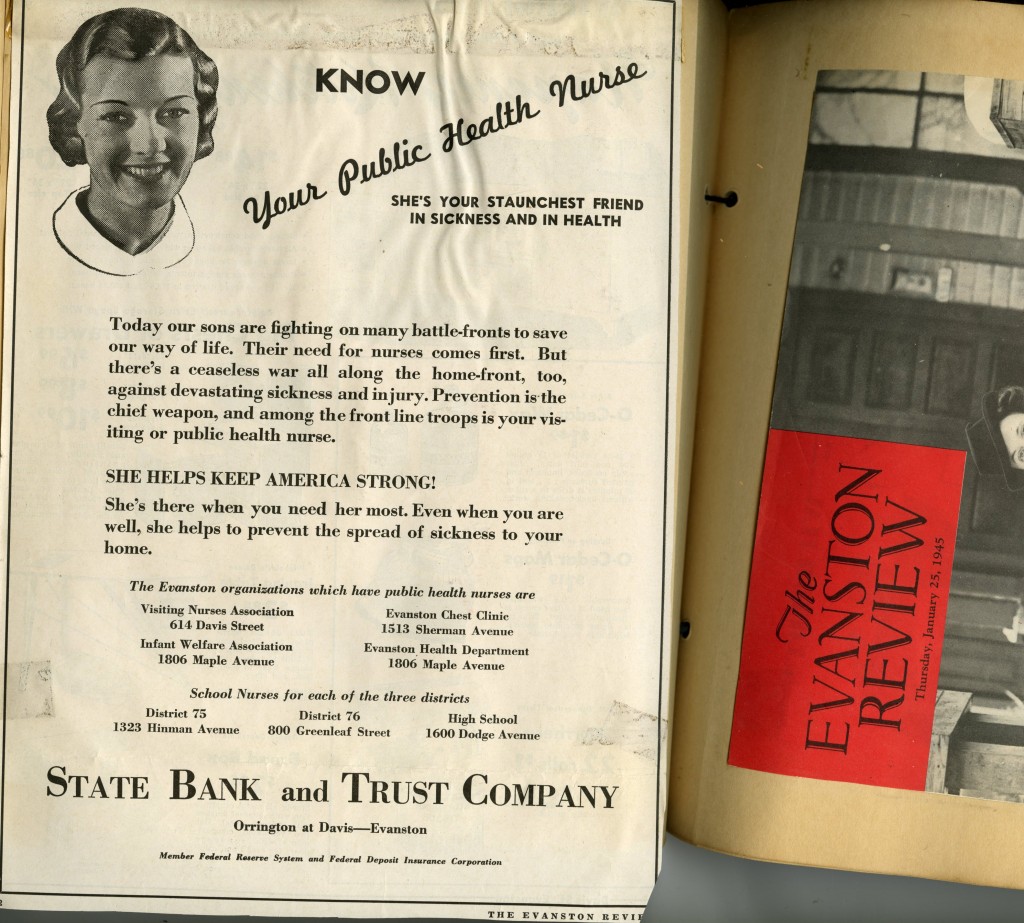
The VNA North collection includes several scrapbooks filled with clippings about the association and local health news. This scrapbook page contains a World War II era ad promoting public health nurses, such as the visiting nurses of VNA North.
While visiting nurses organizations became common for a time, the evolution of healthcare later in the twentieth century led to the closing of many of these non-profits. In the 1980s, VNA North merged with the VNAs of Glenview and Skokie in order to serve twenty-nine communities. Due to the challenges created by the growth in managed care, in 1997, 100 years after its founding, VNA North was fully integrated into Evanston Northwestern Healthcare and was renamed ENH Home Services.
While we still debate about the best way to provide care to the underprivileged, it is nice to think about a group of women one hundred years ago who used their resources to provide services and education that could save lives.
Caroline is a Graduate Assistant at the WLA and is working on her Master’s in Public History at Loyola University Chicago. She spends her spare time exploring Chicago, interpreting dreams, and watching cheesy movies with her husband.
Loyola University Chicago’s Women and Leadership Archives Blog is designed to provide a positive environment for the Loyola community to discuss important issues and ideas. Differences of opinion are encouraged. We invite comments in response to posts and ask that you write in a civil and respectful manner. All comments will be screened for tone and content and must include the first and last name of the author and a valid email address. The appearance of comments on the blog does not imply the University’s endorsement or acceptance of views expressed.
Women and the Written Word: Poetesses in the Archives
For those who do not know, April is National Poetry Month. In celebration of the occasion, I delved into the Women & Leadership Archives’ collections to find records and personal papers concerning women’s contributions to the arts, particularly the written word. As close followers of the Women and Leadership Archives know, our collections feature the creative pursuits of remarkable female performers, artists, sculptors, and patrons, both past and present. In fact, check out the WLA’s digital collection Visions: A Highlight of Chicago Women Artists for a more detailed sampling of the materials we hold regarding these talented female artists.
Along with preserving the records and papers of women in performance and the fine arts, the Women & Leadership Archives also holds the records of famous poetesses as well as numerous poems featured in feminist newspapers. The first, Ruth Lisa Schecter, published several books of poetry including Near The Wall of Lion Shadows, Moveable Parts, Suddenly Thunder, and eight others. Her writings were also published in more than one hundred and fifty journals. In addition to actively writing throughout her adult life, Schecter was also passionately involved in spreading the influence of poetry through Arts Councils and colleges. Schecter served as the poet-in-residence at Mundelein College* beginning in 1969.
The second poet, Renny Golden, combined her love for writing with a passion for social activism. Her best known book of poetry The Hour of the Furnaces articulates the suffering of many citizens of Central American countries in the tumultuous years of the 1980s, when several countries fought civil wars against militaristic regimes. This work earned a nomination for the National Book Award in 2000.
Additionally, the WLA preserves numerous anonymous submissions of poetry from The Feminist Voice, one of Chicago’s first feminist newspapers that began during the 1970s. See below for some examples of these anonymous pieces as well as a sampling of some of the amazing offerings created by our other profound poetesses.
This image from the Connie Kiosse Papers was submitted by an anonymous artist and poet. The marriage of words and illustration provide a provocative image of the contributor’s views on romantic love.
Another anonymous submission from the Connie Kiosse papers, this poem with accompanying illustration depicts the author’s personal struggle with a failing relationship and her tumultuous emotions associated with it. The poem makes powerful reference to the role of self-esteem as it intersects with modern womanhood.
These two images depict an early draft of Ruth Lisa Schecter’s titular poem for her book, Suddenly Thunder and another one of her poems “Many Rooms in a Winter Night.” Examining drafts of Schecter’s work allows researchers to view the artist’s creative process as she composes a work from beginning to end.
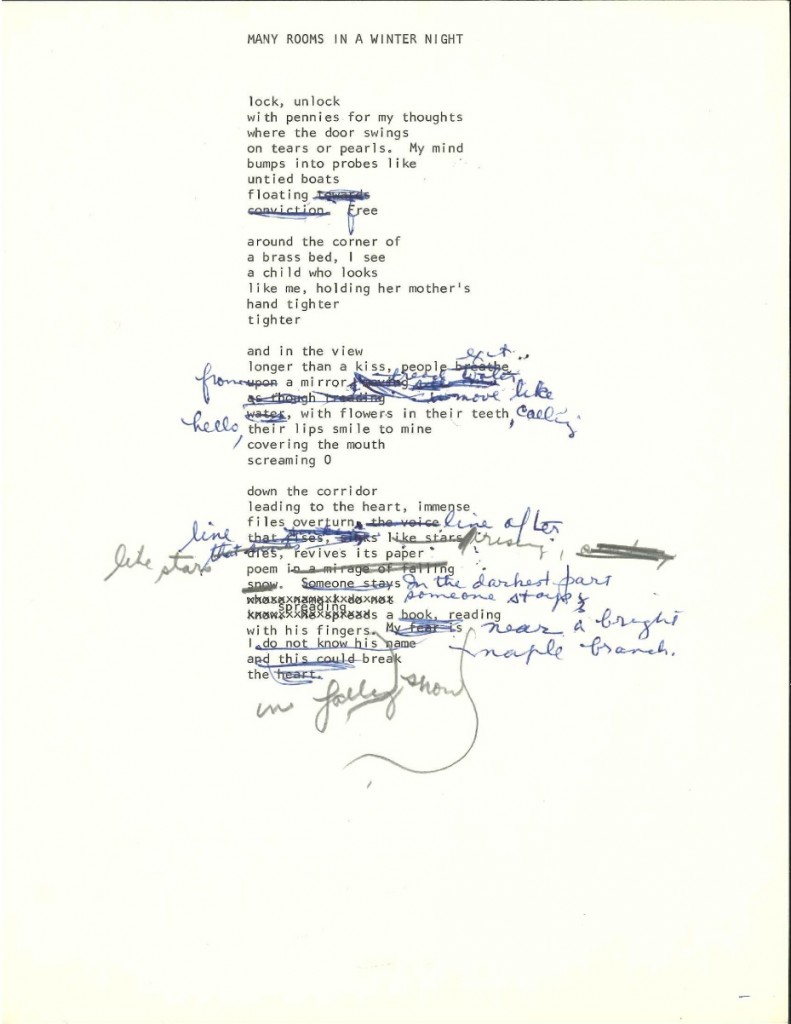
Revision of one of Schecter’s later poems “Many Rooms in a Winter Night,” 1989. Ruth Lisa Schecter Papers.
*Mundelein College, founded and operated by the Sisters of Charity of the Blessed Virgin Mary (BVM), provided education to women from 1930 until 1991, when it affiliated with Loyola University Chicago. The Women and Leadership Archives (WLA) at Loyola holds the records of Mundelein College.
Ellen is a Graduate Assistant at the WLA and is in the first year of her M.A in Public History at Loyola University Chicago. Before moving to Chicago, Ellen was a Kindergarten teacher in Louisiana. She enjoys brunch, procedural dramas, and pugs.
Loyola University Chicago’s Women and Leadership Archives Blog is designed to provide a positive environment for the Loyola community to discuss important issues and ideas. Differences of opinion are encouraged. We invite comments in response to posts and ask that you write in a civil and respectful manner. All comments will be screened for tone and content and must include the first and last name of the author and a valid email address. The appearance of comments on the blog does not imply the University’s endorsement or acceptance of views expressed.
Reflections on the National Council on Public History’s Annual Meeting
This past weekend I attended the National Council on Public History’s annual meeting in Baltimore, Maryland. The conference revolved around the theme of “Challenging the Exclusive Past”. This theme starts to scratch the surface on the multitude of complexities in doing public history work. Attending the NCPH conference allowed me to draw broad comparisons among a variety of public history institutions throughout the country. Following in line with the conference theme, the main sessions highlighted the need to fill in the gaps in the historic record and tell the stories that have been ignored in the past.
Working at the Women and Leadership Archives (WLA), I understand the need to expand the historical narrative to be more inclusive. The WLA first and foremost preserves documents related to women, a group often ignored in the historical record. While the main function of many archives is not necessarily to display or exhibit the collections, the WLA does host events, put on presentations, write weekly blog posts, and create tabletop displays and digital exhibits. These are ways of highlighting not only the WLA’s collections, but women’s history in general. The collections contained within the archives are also open for researchers and the public and they too may utilize the documents to fill in gaps and contribute to the study of women in history.
After attending the NCPH conference it became very clear to me how difficult it can be for some public history institutions to include materials, stories, and exhibits from marginalized groups. Many public history professionals spoke not just of the people, stories, and histories that have been left out of the historical record, but of the institutions in place to prevent them from telling those histories. The stories ranged from people working in small local museums to the National Park Service and other federal organizations. There were many current and former federal employees and their comments were not always very positive about their past and present work. They brought up limitations they have at current historical sites because of controversial topics and they also mentioned that they struggle with people in positions of power to recognize and promote new sites that would fill in the gaps in the historical record.
While hearing about these challenges and struggles can be disheartening, I choose to take a more positive stance on the matter by applauding all those working to change current attitudes. Many of these people have been working for years to have their work recognized and have yet to succeed, but what they are doing is making a difference. My time spent at NCPH was very valuable to me in terms of understanding how I might proceed in the future with public history work. I am also thankful for institutions like the WLA that are dedicated to preserving the history of marginalized groups. These institutions are necessary because they open their doors to people who will be part of researching and writing the histories that have yet to be told.
Megan is a Graduate Assistant at the WLA and is in the first year of her M.A in Public History at Loyola University Chicago. She is an avid movie-goer and enjoys arts and crafts, live sporting events, and small Midwestern towns.
Loyola University Chicago’s Women and Leadership Archives Blog is designed to provide a positive environment for the Loyola community to discuss important issues and ideas. Differences of opinion are encouraged. We invite comments in response to posts and ask that you write in a civil and respectful manner. All comments will be screened for tone and content and must include the first and last name of the author and a valid email address. The appearance of comments on the blog does not imply the University’s endorsement or acceptance of views expressed.

